SWEDISH
SOUTH ASIAN STUDIES NETWORK
Newsletter 114:
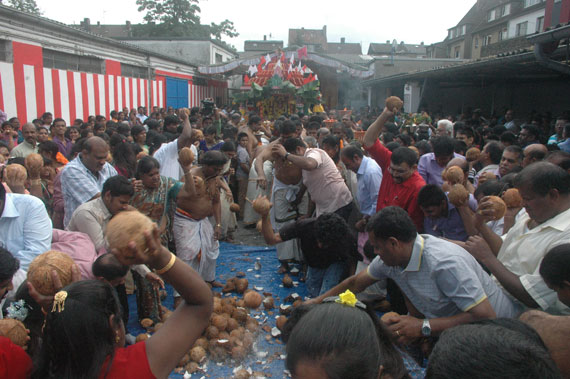 |
| Hindu Tamil temple in Hamm, Germany, August,1, 2010. Photo: Lars Eklund |
5 October 2010
| Educational News |
| Lectures and seminars |
| Business and Politics |
| South Asia related Culture |
| New and updated information |
• SASNET’s national board dissolved
 On 30 September 2010, SASNET’s national board was dissolved. This is an adaptation to the fact that SASNET is now entirely funded by Lund University. The board had its last meeting at Uppsala University on 11 May 2010. The main issue for the meeting was to discuss the changed situation for SASNET since the funding from the Swedish International Development Cooperation Agency (Sida) ended on December 31, 2009. The extensive work report for 2009 (go for it) was presented to the board by Anna and Lars, and the accounts were approved.
On 30 September 2010, SASNET’s national board was dissolved. This is an adaptation to the fact that SASNET is now entirely funded by Lund University. The board had its last meeting at Uppsala University on 11 May 2010. The main issue for the meeting was to discuss the changed situation for SASNET since the funding from the Swedish International Development Cooperation Agency (Sida) ended on December 31, 2009. The extensive work report for 2009 (go for it) was presented to the board by Anna and Lars, and the accounts were approved.
The most important point was however the decision by the board, hitherto representing several Swedish universities (and also with representation for NGOs and other Nordic universities, see the organisation) to dissolve itself when the current term of office ended, by 30 September 2010. The decision was unanimous, and at the same time the board thanked Lund University for its decision to give extra funding for SASNET to survive through 2010 (more information). Since SASNET has evolved a strong position among Swedish researchers nationwide, the board members hope to continue collaborative work even with a new organisation of SASNET. Read the Minutes from the last board meeting.
• Follow SASNET also via Facebook
![]() SASNET is now also present on Facebook. Please join the network through our Facebook group as well, and be updated about new events.
SASNET is now also present on Facebook. Please join the network through our Facebook group as well, and be updated about new events.
Go to the SASNET Facebook group.
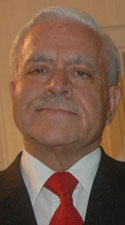 • SASNET organises Indian Ambassador’s visit to Lund University
• SASNET organises Indian Ambassador’s visit to Lund University
On Monday 11 October 2010, the new Indian Ambassador to Sweden, H.E. Mr. Ashok Sajjanhar will make a first visit to Lund University. The programme has been prepared by SASNET, and focuses mainly on the university's Faculty of Engineering (LTH). The Ambassador will however also meet Lund University Assistant Vice Chancellor, Prof. Ingalill Rahm Hallberg, and representatives ofthe Division of International Relations and Lund University Commissioned Education. A separate meting will be held with SASNET’s director, Dr. Anna Lindberg, and deputy director, Mr. Lars Eklund, regarding the coming ICCR professorship at Lund University (more information).
• SASNET/UPF/Swallows seminar on the Impact of Microcredits in South Asia
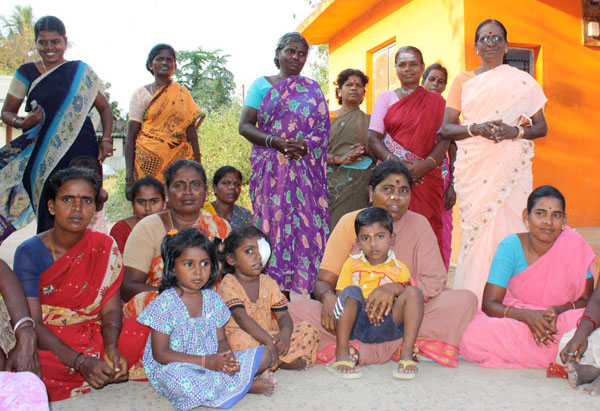 A SASNET seminar on ”Emancipation or Dependency: Microcredits in South Asia” will be held in Lund on Wednesday 20 October 2010, 19.00–21.00. The seminar will be co-organised by The Association of Foreign Affairs at Lund University (UPF), and The Swallows India Bangladesh, an NGO based at Lund. The seminar features Markus Pauli, Doctoral Candidate, University of Heidelberg, Germany who will talk about ”Microfinance in India – assessing its impact with the capability approach”; and Ms. Khushi Kabir, Coordinator for Nijera Kori, a non governmental development organization in Bangladesh. Ms. Kabir will give a presentation entitled ”Setting Development Priorities: Economic Well Being or Empowerment for the Poorest”. The following discussion will be moderated by Dr. Anna Lindberg, SASNET. Venue for the seminar: Café Athen, Sandgatan 2, Lund.
A SASNET seminar on ”Emancipation or Dependency: Microcredits in South Asia” will be held in Lund on Wednesday 20 October 2010, 19.00–21.00. The seminar will be co-organised by The Association of Foreign Affairs at Lund University (UPF), and The Swallows India Bangladesh, an NGO based at Lund. The seminar features Markus Pauli, Doctoral Candidate, University of Heidelberg, Germany who will talk about ”Microfinance in India – assessing its impact with the capability approach”; and Ms. Khushi Kabir, Coordinator for Nijera Kori, a non governmental development organization in Bangladesh. Ms. Kabir will give a presentation entitled ”Setting Development Priorities: Economic Well Being or Empowerment for the Poorest”. The following discussion will be moderated by Dr. Anna Lindberg, SASNET. Venue for the seminar: Café Athen, Sandgatan 2, Lund.
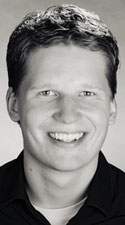 – Markus Pauli (photo to the right) is currently working on his doctoral thesis (with the provisional title ”The Power of Individual Freedom as a Concept and Practice in Development –
Operationalization of the Capability Approach for Assessing the Impact of
Poverty-Oriented Microfinance in India”) within Heidelberg University’s Cluster of Excellence 'Asia and Europe in a Global Context' Graduate Programme for Transcultural Studies. In his research based on fieldwork conducted in Tamil Nadu, Mr. Pauli studies the impact of microfinance in India, trying to operationalize the capability approach of Amartya Sen in order to draw a more comprehensive picture of the positive and negative impact of microfinance.
– Markus Pauli (photo to the right) is currently working on his doctoral thesis (with the provisional title ”The Power of Individual Freedom as a Concept and Practice in Development –
Operationalization of the Capability Approach for Assessing the Impact of
Poverty-Oriented Microfinance in India”) within Heidelberg University’s Cluster of Excellence 'Asia and Europe in a Global Context' Graduate Programme for Transcultural Studies. In his research based on fieldwork conducted in Tamil Nadu, Mr. Pauli studies the impact of microfinance in India, trying to operationalize the capability approach of Amartya Sen in order to draw a more comprehensive picture of the positive and negative impact of microfinance.
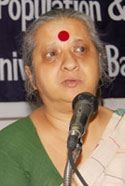 – Kushi Kabir is Executive Director for Nijera Kori, Bangladesh, an organisation working in 1,375 villages in 17 districts of Bangladesh. Nijera Kori believes in creating strong autonomous organizations of the rural poor, able to assert their rights and ensure their entitlements as citizens of Bangladesh, facilitating better access to rural services and available resources, with a view to building self-reliance through mobilisation and collective action rejecting use of micro credit as well as other service delivery approaches. Ms. Kabir is also the Chairperson for the Association of Land Reform and Development (ALRD), a network of NGOs and Bangladeshi citizens active in land rights issues.
– Kushi Kabir is Executive Director for Nijera Kori, Bangladesh, an organisation working in 1,375 villages in 17 districts of Bangladesh. Nijera Kori believes in creating strong autonomous organizations of the rural poor, able to assert their rights and ensure their entitlements as citizens of Bangladesh, facilitating better access to rural services and available resources, with a view to building self-reliance through mobilisation and collective action rejecting use of micro credit as well as other service delivery approaches. Ms. Kabir is also the Chairperson for the Association of Land Reform and Development (ALRD), a network of NGOs and Bangladeshi citizens active in land rights issues.
More information about the Microcredits seminar.
• SASNET and NIAS co-organises the 2011 Falsterbo conference
The two successful conferences for young Nordic scholars involved in South Asia related studies and research that SASNET organised 2009 and 2010 (more information about the 2010 conference), will get a follow-up in 2011. This time the conference, aimed at masters students, PhD candidates and young post-docs, will be jointly organised by SASNET and the Nordic Institute of Asian Studies (NIAS).
A decision regarding collaboration was taken at a meeting in Copenhagen on Tuesday 28 September 2010, between Anna Lindberg and Lars Eklund from SASNET, and NIAS Director Dr. Geir Helgesen, and other representatives of the institute. More information on the 2011 conference, that again will be held at Höllviken, south of Malmö, will be posted soon.
• Lund University coordinates new Asia Regional Erasmus Mundus mobility programme
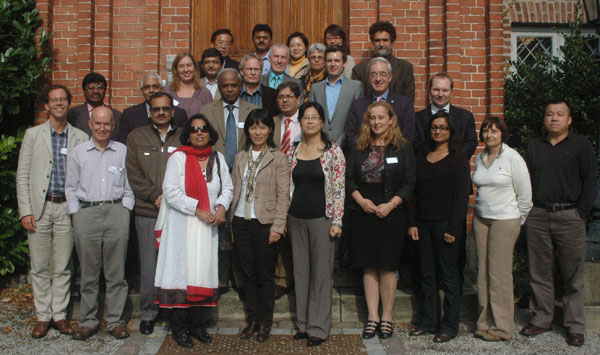 SASNET has been closely involved in the planning for a new Asia Regional Erasmus Mundus Action 2 mobility programme that was decided upon by the European Commission in July 2010 (more information below). The project is led by Lund University that already since 2008 successfully coordinates an existing Indo-European Erasmus Mundus mobility programme. Now the university will also administer a new Asia Regional project that includes seven South Asian universities, four in India (Delhi University; Jadavpur University, Kolkata; Indian Institute of Technology Kanpur (IITK); and Tata Instititute of Social Sciences, Mumbai), and one each in Pakistan (Karachi University), Nepal (Tribhuvan University), and Bangladesh (Jahangirnagar University).
SASNET has been closely involved in the planning for a new Asia Regional Erasmus Mundus Action 2 mobility programme that was decided upon by the European Commission in July 2010 (more information below). The project is led by Lund University that already since 2008 successfully coordinates an existing Indo-European Erasmus Mundus mobility programme. Now the university will also administer a new Asia Regional project that includes seven South Asian universities, four in India (Delhi University; Jadavpur University, Kolkata; Indian Institute of Technology Kanpur (IITK); and Tata Instititute of Social Sciences, Mumbai), and one each in Pakistan (Karachi University), Nepal (Tribhuvan University), and Bangladesh (Jahangirnagar University).
 The project has been named EMEA – Erasmus Mundus Europe Asia – and will be open for applications from November 1, 2010 and remain open until December 15.
The project coordinators are Ms. Elisabeth Axell and Ms. Katarina Wingkvist, International Relations, Lund University (photo).
The project has been named EMEA – Erasmus Mundus Europe Asia – and will be open for applications from November 1, 2010 and remain open until December 15.
The project coordinators are Ms. Elisabeth Axell and Ms. Katarina Wingkvist, International Relations, Lund University (photo).
Go for the EMEA project web site.
A first consortium meeting was held in Lund 23–24 September 2010, when Vice Chancellors and international coordinators from the consortium member universities came to Lund for a hectic meeting to decide upon the principles for the selection process, discuss the implementation of the project, and to elect a steering committeee. During the kick-off meeting, it was also decided to set up four thematic groups – on quality assurance, on
development of joint projects, on events/conferences, and finally on a
visibility strategy for the project. SASNET’s deputy director Lars Eklund is a member of this visibility strategy group. More information about the Lund kick-off meeting.
• SASNET/LUCSUS seminar on Devastating Floods in Pakistan
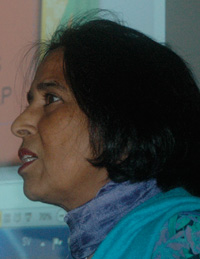 Professor Shahana Urooj Kazmi,
Pro-Vice Chancellor at the University of Karachi, Pakistan gave an engaged presentation entitled ”Devastating Floods in Pakistan:
A story of Pain, Grief and
Suffering – Can We Help?” at Lund University on Wednesday 22 September 2010. Prof. Kazmi, on a short visit to Lund to participate in the consortium meeting of the Erasmus Mundus Asia Regional mobility programme, mentioned above, gave an overview regarding the flood relief activities carried out
by teachers and students at her university in the Northern part of Sindh province, through the Karachi University
Disaster Management Volunteer Corps, a work carried out under the patronage of Chancellor Dr. Ishrat-ul Ibaad,
Vice Chancellor Dr. Przada Qasim R. Siddiqui and Pro VC Dr. Shahana Urooj Kazmi. She was introduced by SASNET’s deputy director, Lars Eklund.
Professor Shahana Urooj Kazmi,
Pro-Vice Chancellor at the University of Karachi, Pakistan gave an engaged presentation entitled ”Devastating Floods in Pakistan:
A story of Pain, Grief and
Suffering – Can We Help?” at Lund University on Wednesday 22 September 2010. Prof. Kazmi, on a short visit to Lund to participate in the consortium meeting of the Erasmus Mundus Asia Regional mobility programme, mentioned above, gave an overview regarding the flood relief activities carried out
by teachers and students at her university in the Northern part of Sindh province, through the Karachi University
Disaster Management Volunteer Corps, a work carried out under the patronage of Chancellor Dr. Ishrat-ul Ibaad,
Vice Chancellor Dr. Przada Qasim R. Siddiqui and Pro VC Dr. Shahana Urooj Kazmi. She was introduced by SASNET’s deputy director, Lars Eklund.
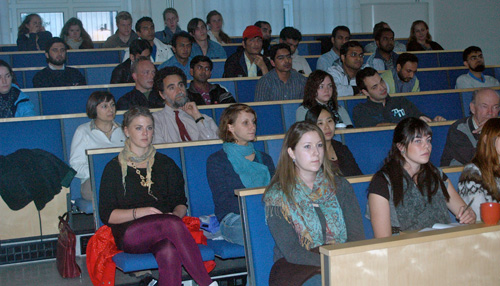 A large audience of students and faculty from Lund University, some of them actually coming from University of Karachi, attended the
seminar and afterwards a group was formed to discuss immediate relief efforts. The seminar was jointly organised by SASNET and Lund University Centre for Sustainability Studies (LUCSUS).
Venue: Lecture Hall Världen,
Geocentrum 1, Sölvegatan 10, Lund.
A large audience of students and faculty from Lund University, some of them actually coming from University of Karachi, attended the
seminar and afterwards a group was formed to discuss immediate relief efforts. The seminar was jointly organised by SASNET and Lund University Centre for Sustainability Studies (LUCSUS).
Venue: Lecture Hall Världen,
Geocentrum 1, Sölvegatan 10, Lund.
More information about the seminar.
The daily newspaper Sydsvenskan published an interview with Prof. Kazmi, on the new Erasmus Mundus mobility programme, on Thursday 23 September 2010.
Read the article entitled ”Utbytet med Asien ökar”.
• SASNET/Lund University seminar on Pattern of Sino-Indian Relations
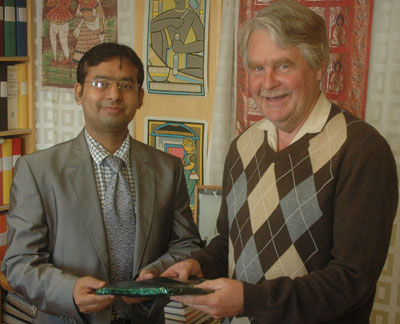 Associate Professor Jagannath Prasad Panda from the Institute for Defense
Studies and Analysis (ISDA) in New Delhi, India,
held a SASNET lecture on ”The Pattern of Sino-Indian Relations:
Evaluating the Strategic Discourse” at Lund University on
Wednesday 29 September 2010. The seminar was organised in collaboration with Associate Professor Catarina Kinnvall at the Department of
Political Science, Lund University. Dr. Panda works as a Research Fellow at IDSA, a premier think-tank body in India,
since August 2010. He is also the Managing Editor for the Peace and Development
Digest, published by Foundation for Peace and Sustainable Development in New Delhi.
He defended his doctoral dissertation in 2007 at the School of International Studies,
Jawaharlal Nehru University (JNU), New Delhi.
His research interests focuses on Sino-Indian relations. He has come to Sweden in connection with collaborative research work at the Institute for Security
and Development Policy (ISDP) in Nacka/Stockholm.
He is preparing a paper on ”China, India
and BRIC: Realist Interpretation of a Multi-polar World Order”. Venue for the seminar: Main conference hall (room 366), 2nd floor,
Dept. of Political Science, Paradisgatan 5, Lund. More information about the seminar.
Associate Professor Jagannath Prasad Panda from the Institute for Defense
Studies and Analysis (ISDA) in New Delhi, India,
held a SASNET lecture on ”The Pattern of Sino-Indian Relations:
Evaluating the Strategic Discourse” at Lund University on
Wednesday 29 September 2010. The seminar was organised in collaboration with Associate Professor Catarina Kinnvall at the Department of
Political Science, Lund University. Dr. Panda works as a Research Fellow at IDSA, a premier think-tank body in India,
since August 2010. He is also the Managing Editor for the Peace and Development
Digest, published by Foundation for Peace and Sustainable Development in New Delhi.
He defended his doctoral dissertation in 2007 at the School of International Studies,
Jawaharlal Nehru University (JNU), New Delhi.
His research interests focuses on Sino-Indian relations. He has come to Sweden in connection with collaborative research work at the Institute for Security
and Development Policy (ISDP) in Nacka/Stockholm.
He is preparing a paper on ”China, India
and BRIC: Realist Interpretation of a Multi-polar World Order”. Venue for the seminar: Main conference hall (room 366), 2nd floor,
Dept. of Political Science, Paradisgatan 5, Lund. More information about the seminar.
During his stay in Lund, Dr. Panda also visited SASNET’s office and discussed with its deputy director Lars Eklund on possible future collaboration projects between the Indian Institute for Defense
Studies and Analysis, and SASNET. Photo from the meeting.
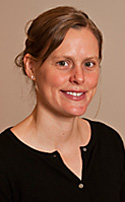 |
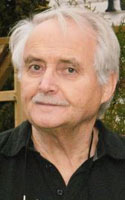 |
| Camilla Orjuela and Peter Schalk. | |
• SASNET/UPF seminar on the Sri Lanka post-war situation
A SASNET/UPF seminar on ”Sri Lanka after the War will be held in Lund on Wednesday 24 November 2010, 19.00–21.00. The speakers are Dr. Camilla Orjuela, Peace and Development Studies, School of Global Studies, University of Gothenburg, who will talk about ”Sri Lanka after the War: Sustainable Peace or new Conflicts?”; and Professor Peter Schalk, Chair in the History of Religions (in particular in Hinduism and Buddhism) at the Faculty of Theology, Uppsala university, who will talk about ”Defeated but Defiant. The Ilamtamil Resistance Movement after May 2009”. The seminar is co-organised by SASNET and the Association of Foreign Affairs (UPF) at Lund University. Venue for the seminar: Café Athen, Sandgatan 2, Lund.
• More information about SASNET and its
activities
See SASNET’s page, http://www.sasnet.lu.se/sasnet.html
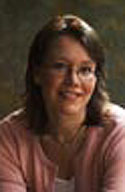 |
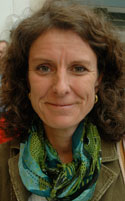 |
| Åsa Sjöling and Anna Godhe. | |
• Formas – Sida/SAREC grants to South Asia related research projects
 In April 2010, a couple of South Asia related research projects were given continued funding from the so-called Joint Formas – Sida/SAREC programme for research
on sustainable development in developing countries. The programme aims
to promote participation of scientists from Sweden in sustainability
research in developing countries, with an overall intention to contribute
to global sustainable development in the spirit of the UN Conference
in Johannesburg 2002, and is administered by Formas, the Swedish Research Council for Environment, Agricultural Sciences and Spatial Planning.
In April 2010, a couple of South Asia related research projects were given continued funding from the so-called Joint Formas – Sida/SAREC programme for research
on sustainable development in developing countries. The programme aims
to promote participation of scientists from Sweden in sustainability
research in developing countries, with an overall intention to contribute
to global sustainable development in the spirit of the UN Conference
in Johannesburg 2002, and is administered by Formas, the Swedish Research Council for Environment, Agricultural Sciences and Spatial Planning.
The recipients of grants include Dr. Åsa Sjöling, Division of Medical Microbiology and Immunology, Institute of Biomedicine, Gothenburg University, with a project on ”Detection and characterisation of pathogenic bacteria in water samples in Bangladesh”; and Dr. Anna Godhe, Marine Botany, Department of Marine Ecology, Gothenburg University, with a project on ”Inter-relation between bacteria and phytoplankton blooms in the Arabian Sea”. More information.
• Lund University dissertation about 20th Century Christian Mission in South India
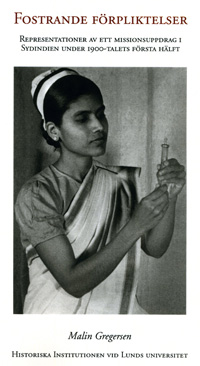 Malin Gregersen, Department of History, Lund University will defend her doctoral dissertation entitled ”Fostering Obligations. Representations of a Mission in South India in the First Half of the 20th Century” (Fostrande förpliktelser. Representationer av ett missionsuppdrag i Sydindien under 1900-talets första hälft) on Friday 8 October 2010, 10.15. The thesis focuses on narratives from Swedish missionaries working in the small town of Tirupattur, Tamil Nadu, and their influence in the formation of early 20th century Swedish world views. Malin Gregersen problematizes the issue by pointing out that these narratives of everyday life in foreign countries were formulated out of a mission, not only to convert to christianity but to foster and mould people according to their different ideals. The faculty opponent will be Prof. Kajsa Ahlstrand, World Christianity and Interreligious Studies, Faculty of Theology, Uppsala University. Venue: Dept. of History, hall 3, Magle Stora Kyrkogata 12 A, Lund.
Malin Gregersen, Department of History, Lund University will defend her doctoral dissertation entitled ”Fostering Obligations. Representations of a Mission in South India in the First Half of the 20th Century” (Fostrande förpliktelser. Representationer av ett missionsuppdrag i Sydindien under 1900-talets första hälft) on Friday 8 October 2010, 10.15. The thesis focuses on narratives from Swedish missionaries working in the small town of Tirupattur, Tamil Nadu, and their influence in the formation of early 20th century Swedish world views. Malin Gregersen problematizes the issue by pointing out that these narratives of everyday life in foreign countries were formulated out of a mission, not only to convert to christianity but to foster and mould people according to their different ideals. The faculty opponent will be Prof. Kajsa Ahlstrand, World Christianity and Interreligious Studies, Faculty of Theology, Uppsala University. Venue: Dept. of History, hall 3, Magle Stora Kyrkogata 12 A, Lund.
Full information, including link to full-text tesis.
• Six new regional Erasmus Mundus mobility programmes involving South Asian universities
 Six new Erasmus Mundus Action 2 projects with South Asian partners have now been launched.
In July 2010, the European Commission, through its Education, Audiovisual and Culture Executive Agency (EACEA) decided upon the 2010 Erasmus Mundus Action 2 Partnership programme, that included two Asia Regional lots.
Six new Erasmus Mundus Action 2 projects with South Asian partners have now been launched.
In July 2010, the European Commission, through its Education, Audiovisual and Culture Executive Agency (EACEA) decided upon the 2010 Erasmus Mundus Action 2 Partnership programme, that included two Asia Regional lots.
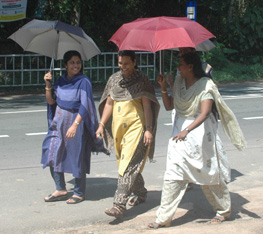 Lot No. 11 is primarily devoted to South Asia, with partner universities in at least three of the following group A countries: Afghanistan, Bhutan, Nepal, Pakistan, and Bangladesh; besides at least two of the following group B countries: Sri Lanka, India, Indonesia, Malaysia, Maldives, Philippines, Thailand, China, and North Korea.
Lot No. 11 is primarily devoted to South Asia, with partner universities in at least three of the following group A countries: Afghanistan, Bhutan, Nepal, Pakistan, and Bangladesh; besides at least two of the following group B countries: Sri Lanka, India, Indonesia, Malaysia, Maldives, Philippines, Thailand, China, and North Korea.
Lot No. 12 on the other hand is primarily devoted to South-East Asian countries, but also also gave the possibility to include universities in Sri Lanka, India and/or Maldives.
Each selected partnership project will have a mobility flow of 100 individuals, and a budget of Euro 2.475 m.
This is a follow-up programme to the previous mobility scheme entitled Erasmus Mundus External Cooperation Window (EMECW) that has included Asia Regional lots with South Asian partner universities, as well as specific Indo-European university consortia since 2008.
Full information about existing South Asia related EMECW/Erasmus Mundus Action 2 projects.
Ten European-Asian university consortia were now selected for the Asia Regional lots, No 11 and 12. They differ from the previous EMECW programmes in being strictly one-way mobility programmes, from Asia to Europe, not vice-versa.
Lund University, Sweden, that already successfully coordinates an existing Indo-European Erasmus Mundus Action 2 programme, was now again selected to coordinate one of the five new Lot 11 projects, within the framework of a consortium consisting of 20 universities, eight in Europe and 12 in Asia. Four of them are located in India (Delhi University; Jadavpur University, Kolkata; Indian Institute of Technology Kanpur (IITK); and Tata Instititute of Social Sciences, Mumbai), and one each in Pakistan (Karachi University), Nepal (Tribhuvan University), and Bangladesh (Jahangirnagar University). SASNET has been closely involved in the planning for the project, that has been named EMEA – Erasmus Mundus Europe Asia – and will be open for applications from November 1, 2010 and remain open until December 15. A first consortium meeting was held in Lund 23–24 September 2010 (more information above).
Go for the EMEA consortium web page.
Four other university consortia with South Asian partners have been launched within Lot 11, being coordinated by the following European universities:
– University of Deusto, Bilbao, Spain. The consortium includes the following South Asian universities:
Kabul University, Afghanistan; Royal University, Bhutan; Tribhuvan University, Nepal; International Islamic University, Pakistan; Lahore University of Management Sciences (LUMS), Pakistan; University of Colombo, Sri Lanka; University of Pune, India; and Maldives College of Higher Education.
More information about this project.
– Karl August University, Göttingen, Germany. Uppsala University is a Swedish partner university. The consortium includes the following South Asian universities:
Royal University, Bhutan; Kathmandu University, Nepal; Tribhuvan University, Nepal; Lahore University of Management Sciences (LUMS), Pakistan; University of Peradeniya, Sri Lanka; Khulna University, Bangladesh; University of Pune, India; University of Delhi, India; and Tata Institute of Social Sciences, Mumbai, India.
More information about this project.– University of Nice Sophia Antipolis, France. Project entitled EMMA (Erasmus Mundus Mobility with Asia). The consortium includes the following South Asian universities:
University of Dhaka, Bangladesh; Ahsanullah University of Science and Technology, Bangladesh; BRAC University, Dhaka, Bangladesh; Jadavpur University, India; Kathmandu University, Nepal; and COMSATS Institute of Information and Technology, Pakistan.
The EMMA kick-off meeting was hosted at the Asian Institute of Technology (AIT) in Bangkok, Thailand, from September 30 to October 2, 2010.
More information about this project.– University of Rome Sapienza, Italy. The consortium includes the following South Asian universities:
Nangarhar University, Jalalabad, Afghanistan; Institute of Engineering, Tribhuvan University, Kathmandu, Nepal; National Society for Earthquake Technology (NSET), Nepal; Ned University of Engineering and Technology, Karachi, Pakistan; and University of Dhaka, Bangladesh.
More information about this project.
Five consortia were also selected for the South-East Asia oriented Lot No 12 (that still may include South Asian partner universities). The following project coordinated by a European university has South Asian partners:
– University of Science and Technology 2, Montpellier, France. Uppsala University is a Swedish partner university. The consortium includes the following South Asian universities:
University of Madras, Chennai, India; and University of Colombo, Sri Lanka.
More information about this project.
More information about the 2010 Erasmus Mundus Action 2 Partnership programmes.
• EU Study Centres in India workshop held in Aarhus and Berlin
A four-day European Workshop for both new and existing
EU Study Centres in India was organised in 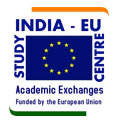 collaboration with Aarhus
University, Denmark, on 18–20 June 2010, at the Aarhus University Conference
Centre, and at Freie Universität Berlin in
Germany. The purpose was to explore sustainability of the India-EU Study Centres Programme (IESCP). Six India Study Centres have been set up in Europe – out of which one in Scandinavia, and nine European Study Centres in India (more information). Another major objective with the workshop was to provide exposure to
the both EU and Contemporary India Study Centres about the
Systems of Higher Education and Exchange Programmes in
Germany, France, Poland, Denmark, Italy, Netherlands and India.
The invited participants were representatives of selected new
and existing EU Study Centres in India and Contemporary India
Studies in Europe.
collaboration with Aarhus
University, Denmark, on 18–20 June 2010, at the Aarhus University Conference
Centre, and at Freie Universität Berlin in
Germany. The purpose was to explore sustainability of the India-EU Study Centres Programme (IESCP). Six India Study Centres have been set up in Europe – out of which one in Scandinavia, and nine European Study Centres in India (more information). Another major objective with the workshop was to provide exposure to
the both EU and Contemporary India Study Centres about the
Systems of Higher Education and Exchange Programmes in
Germany, France, Poland, Denmark, Italy, Netherlands and India.
The invited participants were representatives of selected new
and existing EU Study Centres in India and Contemporary India
Studies in Europe.
More information about the workshop in the IESCP Newsletter.
• New Indian central universities offer combined entrance exams
 In a significant step, seven newly-created Central universities in April 2010 came together to hold a combined entrance exam from this year for admission of students in about 25 courses being offered by them. These institutions are Central Universities of Jammu & Kashmir, Jharkhand, Bihar, Rajasthan, Karnataka, Kerala and Tamil Nadu. The combined entrance exam is the first of its kind exercise being conducted by the Central universities in the country. At present, the IITs and IIMs are holding similar combined entrances for admission.
In a significant step, seven newly-created Central universities in April 2010 came together to hold a combined entrance exam from this year for admission of students in about 25 courses being offered by them. These institutions are Central Universities of Jammu & Kashmir, Jharkhand, Bihar, Rajasthan, Karnataka, Kerala and Tamil Nadu. The combined entrance exam is the first of its kind exercise being conducted by the Central universities in the country. At present, the IITs and IIMs are holding similar combined entrances for admission.
These universities are among 16 new central universities created last year under a Central act. Some of the universities started offering courses already in 2009. More information.
See also the September 2010 Newsletter of the Department of Higher Education, Government of India
• Guest researchers at Uppsala University’s Dept. of Linguistics and Philology
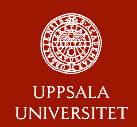 Over the autumnal term 2010, the Department of Linguistics and Philology at Uppsala university, is having a vicar for Sanskrit and
Indo-European language studies, Dr. Leonid Kulikov, who replaces Associate professor Christiane Schaefer. Kulikov is a
senior researcher from Leiden University, the Netherlands. His specialisation
is in Vedic and classical Sanskrit, syntactic and morphological
typology, historical linguistics and diachronic typology and the
Maldives (language, history, culture).
Over the autumnal term 2010, the Department of Linguistics and Philology at Uppsala university, is having a vicar for Sanskrit and
Indo-European language studies, Dr. Leonid Kulikov, who replaces Associate professor Christiane Schaefer. Kulikov is a
senior researcher from Leiden University, the Netherlands. His specialisation
is in Vedic and classical Sanskrit, syntactic and morphological
typology, historical linguistics and diachronic typology and the
Maldives (language, history, culture).
The department also has a post-doc position for Hindi and
Modern Indian Studies, currently taken by Dr. Alessandra Consolaro, lecturer from Turino university (Italy). She has
written on modern Hindi literature and linguistics, and gender studies, and is currently working on a project on ”New writing in the
Hindi literary field”. She also teaches modern politics and society in
India.
The department, formed in 2004 by the merger of the former individual Departments of Linguistics, Classical philology, and African and Asian languages and cultures, administers teaching and conducts research in the different subjects sorting under the former separate departments. More information on the South Asia related part of the department.
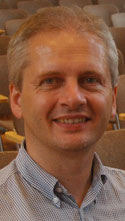 Courses in more than 200 different subjects range from beginners Chinese and Byzantine literature to Advanced computer translation, and also includes a full candidate programme in Hindi language studies. Hindi is taught in the medium of English, exams can be taken in
Swedish or English. Since the Fall 2009, Dr. Heinz Werner Wessler (photo to the left) is a guest professor at the department, in charge of the advanced Hindi courses. Dr. Wessler is otherwise affiliated to the Division of Indology, Institut für Orient- und Asienwissenschaften, University of Bonn, Germany, and in July 2010, he was the main coordinator behind the organisation of the 21st European Conference on Modern South Asian Studies, held in Bonn. More information about the ECMSAS conference.
Courses in more than 200 different subjects range from beginners Chinese and Byzantine literature to Advanced computer translation, and also includes a full candidate programme in Hindi language studies. Hindi is taught in the medium of English, exams can be taken in
Swedish or English. Since the Fall 2009, Dr. Heinz Werner Wessler (photo to the left) is a guest professor at the department, in charge of the advanced Hindi courses. Dr. Wessler is otherwise affiliated to the Division of Indology, Institut für Orient- und Asienwissenschaften, University of Bonn, Germany, and in July 2010, he was the main coordinator behind the organisation of the 21st European Conference on Modern South Asian Studies, held in Bonn. More information about the ECMSAS conference.
 Since 2008, the department also runs a new three-year 180 ECTS Bachelors programme in Oriental Studies (Orientalistikprogrammet), focusing on the Middle East, North Africa, Central and South Asia. Half the time is devoted to language studies, and the rest to studies of political, religious, economic, and literary conditions in obth the past and present. The programme is divided into four branches, where the language to study is Arabic, Persian, Turkish, and Hindi respectively.
During the second year, one semester should be spent at a language institute in the region of studies, and during the third year, special courses in language and literature, political science, and economics will be given.
Since 2008, the department also runs a new three-year 180 ECTS Bachelors programme in Oriental Studies (Orientalistikprogrammet), focusing on the Middle East, North Africa, Central and South Asia. Half the time is devoted to language studies, and the rest to studies of political, religious, economic, and literary conditions in obth the past and present. The programme is divided into four branches, where the language to study is Arabic, Persian, Turkish, and Hindi respectively.
During the second year, one semester should be spent at a language institute in the region of studies, and during the third year, special courses in language and literature, political science, and economics will be given.
More information about the Bachelors programme in Oriental Studies.
• Nordic Forum for South Asian Studies now also on Facebook
NoFSA,
the Nordic Forum for South Asia (originally the
Norwegian Forum for South Asia),
is a non-partisian, apolitical mailing-list providing members
useful information about current events and interesting reading
to people in the Nordic countries who deal with South Asia in
some capacity (researchers, students, volunteer organizations,
journalists, etc.). NoFSA, administered from Oslo, works
in close collaboration with SASNET. More information about NoFSA
![]() NOFSA is now also on facebook! The list server NOFSA-nett
will remain the most important channel for sharing news and information
on matters South Asian, but the facebook group offers an extra opportunity to
advertise South Asia related events; to start more extensive
discussions; to upload and share with fellow members a moderate amount
of photos; and to post news on the group's wall. Go for the Facebook Group
NOFSA is now also on facebook! The list server NOFSA-nett
will remain the most important channel for sharing news and information
on matters South Asian, but the facebook group offers an extra opportunity to
advertise South Asia related events; to start more extensive
discussions; to upload and share with fellow members a moderate amount
of photos; and to post news on the group's wall. Go for the Facebook Group
• Read Staffan Lindberg’s report from 25th anniversary conference at Roskilde
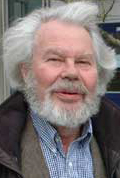 On 10 September 2010, Roskilde University’s International Development Studies celebrated its 25th anniversary. Several prominent researchers, including Stuart Corbridge, Emily Boyd, Jan Nederveen Pietersee, Benedicte Bull and Raymond Bryant, were invited to a conference to discuss contending approaches in development studies as well as the origin and character of development studies. SASNET’ former director, Prof. emeritus Staffan Lindberg (photo), has written a report on the conference.
On 10 September 2010, Roskilde University’s International Development Studies celebrated its 25th anniversary. Several prominent researchers, including Stuart Corbridge, Emily Boyd, Jan Nederveen Pietersee, Benedicte Bull and Raymond Bryant, were invited to a conference to discuss contending approaches in development studies as well as the origin and character of development studies. SASNET’ former director, Prof. emeritus Staffan Lindberg (photo), has written a report on the conference.
Read his report.
• Göttingen announces position as Professor in Society and Culture of Modern India
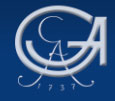 The Georg-August-University Göttingen in Germany invites applications for the position of a Professor in Society and Culture of Modern India at the Centre for Modern Indian Studies (CMIS). Applications are invited from candidates working in any field of anthropology or cultural sociology who have a demonstrated regional specialization in India. This includes particularly candidates working on social change, with a special focus on social inequality, ethnic and religious diversity, or legal pluralism. Candidates must have an interest in, and strong commitment to, interdisciplinary and externally funded research cooperation with other social science professors in the newly created Centre for Modern Indian Studies.
The Georg-August-University Göttingen in Germany invites applications for the position of a Professor in Society and Culture of Modern India at the Centre for Modern Indian Studies (CMIS). Applications are invited from candidates working in any field of anthropology or cultural sociology who have a demonstrated regional specialization in India. This includes particularly candidates working on social change, with a special focus on social inequality, ethnic and religious diversity, or legal pluralism. Candidates must have an interest in, and strong commitment to, interdisciplinary and externally funded research cooperation with other social science professors in the newly created Centre for Modern Indian Studies.
Teaching responsibilities will particularly include contributions to, and further development of, a newly created Bachelor in Interdisciplinary Indian Studies as well as a Master in Modern Indian Studies. Participation in other teaching programmes in the Faculty of Social Sciences to which the professorship is affiliated, is encouraged and contribution to PhD training within the Göttingen Graduate School of Social Sciences is welcome. Deadline for applications is 15 october 2010. More information.
• Online database on 'Making Britain: Discover how South Asians shaped the nation, 1870-1950'
 'Making Britain: Discover how South Asians shaped the nation, 1870-1950' is a new online database providing information on over 500 South Asians in Britain from 1870 to 1950, their British connections, the organisations they were involved in and the major events in which they participated. The database, part of a resarch project led by the Open University in UK, in collaboration with the University of Oxford and King’s College London, highlights biographical, bibliographical and archival references for scholars interested in the South Asian presence in Britain. The project is led by Prof. Susheila Nasta (Open), in collaboration with Professor Elleke Boehmer (Oxford) and Dr Ruvani Ranasinha (King's College London) and Research Associates Dr Rehana Ahmed (Open), Dr Sumita Mukherjee (Oxford) and Dr Florian Stadtler (Open). They are working in partnership with the British Library and the South Asian Diaspora Literature and Arts Archive (SALIDAA), and in consultation with leading scholars Dr Rozina Visram, Professor Lyn Innes, Professor Partha Mitter and Dr Deborah Swallow.
'Making Britain: Discover how South Asians shaped the nation, 1870-1950' is a new online database providing information on over 500 South Asians in Britain from 1870 to 1950, their British connections, the organisations they were involved in and the major events in which they participated. The database, part of a resarch project led by the Open University in UK, in collaboration with the University of Oxford and King’s College London, highlights biographical, bibliographical and archival references for scholars interested in the South Asian presence in Britain. The project is led by Prof. Susheila Nasta (Open), in collaboration with Professor Elleke Boehmer (Oxford) and Dr Ruvani Ranasinha (King's College London) and Research Associates Dr Rehana Ahmed (Open), Dr Sumita Mukherjee (Oxford) and Dr Florian Stadtler (Open). They are working in partnership with the British Library and the South Asian Diaspora Literature and Arts Archive (SALIDAA), and in consultation with leading scholars Dr Rozina Visram, Professor Lyn Innes, Professor Partha Mitter and Dr Deborah Swallow.
The website also offers innovative browsing options, including a timeline, network diagram and interactive location map.
Go for the South Asians Making Britain: 1858-1950 database.
The Guardian newspaper website has also contributed to the project, by providing an online timeline highlighting the research of the 'Making Britain' project. It offers a wide range of visual examples of South Asians presences in Britain from 1858 to1950.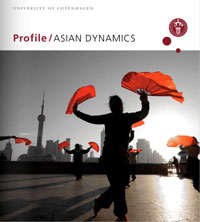
Go for the The Guardian’s online timeline.
• Asian Profile magazine published by University of Copenhagen
University of Copenhagen has published a magazine focusing on its Asian Dynamics Initiative. Profile/Asian Dynamics is the latest issue in the university’s profile magazine series.
Researchers from various departments put the spotlight on Asia and the wide range of research currently taking place in Copenhagen. Asian Dynamics Initiative (ADI) is a cross-faculty research priority area at the university’s Faculty of Humanities and the Faculty of Social Sciences.
Download Profile/Asian Dynamics e-pages.
• 2010 Right Livelihood Award to Nepalese development practitioner
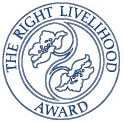
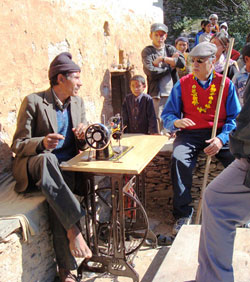 Shrikrishna Upadhyay and the organisation SAPPROS from Nepal are one out of four recipients of the 2010 Right Livelihood Award, widely known as the ”alternative Nobel Price”. They share the price of EUR 200,000. This year, there were 120 proposals from 51 countries, whereof 69 candidates
from ”developing” countries. The award presentation ceremony will be held in the Swedish Parliament on Monday 6 December 2010.
Shrikrishna Upadhyay and the organisation SAPPROS from Nepal are one out of four recipients of the 2010 Right Livelihood Award, widely known as the ”alternative Nobel Price”. They share the price of EUR 200,000. This year, there were 120 proposals from 51 countries, whereof 69 candidates
from ”developing” countries. The award presentation ceremony will be held in the Swedish Parliament on Monday 6 December 2010.
Shrikrishna Upadhyay is a Nepalese development practitioner who has empowered more than a million people in rural Nepal to work for the improvement of their living conditions. Through his work with different organisations, he has demonstrated that poverty can be eradicated if the poor are mobilised and organised. A strong advocate of local self-governance, Upadhyay has strengthened Nepalese communities despite the violent political conflict in the country. The motivation to give SAPPROS and Mr. Upadhyay the award is for ”demonstrating over many years the power of community mobilization to address the multiple causes of poverty even when threatened by political violence and instability”. More information.
• Podcasts from UK workshop on Society and the Everyday State in India and Pakistan
In the beginning of September 2010, the History departments
at Royal Holloway and the University of Leeds, UK, organized a workshop in London on ”From Subjects to Citizens: Society and the Everyday State in India and Pakistan 1947 – 1964”. The proceedings from the workshop are now available on the net as a series of Podcasts. The workshop explored the shift from colonial rule to independence in three sites on the subcontinent Uttar Pradesh (formerly the United Provinces), Sindh, and the Princely State of Hyderabad (Deccan) with the aim of unravelling the explicit meanings and relevance of independence for the new citizens of India and Pakistan in
the two decades immediately following 1947. Speakers included Ali Usman Qasmi, Paul McGarr, Kamran Asdar Ali, William Gould,
Sarah Ansari, Alasdair Pinkerton, Uditi Sen, Nicolas Jaoul, Christophe
Jaffrelot, Taylor Sherman, and Tahir Kamran.
Go for the podcasts from the workshop.
• UNRISD Report on Combating Poverty and Inequality
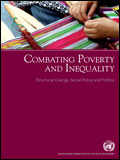 On 3 September 2010, The United Nations Research Institute for Social Development (UNRISD) launched its flagship report entitled ”Combating Poverty and Inequality: Structural Change, Social Policy and Politics”. The report highlights the multiple and complex processes involved in sustainably reducing poverty and inequality, and lays out a range of policies and institutional measures that can be adopted by countries to achieve this goal. It is the result of five years of cutting edge and forward-looking research and offers alternative perspectives and strategies on reducing poverty and inequality to accelerate progress in achieving the Millennium Development goals and other social development objectives. More information about the report.
On 3 September 2010, The United Nations Research Institute for Social Development (UNRISD) launched its flagship report entitled ”Combating Poverty and Inequality: Structural Change, Social Policy and Politics”. The report highlights the multiple and complex processes involved in sustainably reducing poverty and inequality, and lays out a range of policies and institutional measures that can be adopted by countries to achieve this goal. It is the result of five years of cutting edge and forward-looking research and offers alternative perspectives and strategies on reducing poverty and inequality to accelerate progress in achieving the Millennium Development goals and other social development objectives. More information about the report.
In connection with the launch of the new UNRISD report, the Chronic Poverty Research Centre (CPRC) held an international conference on ”Ten Years of War Against Poverty: What We Have Learned Since 2000 and What We Should Do 2010–2020” on 9 September 2010 in Manchester, UK, to mark ten years of poverty research by the centre, where UNRISD Director Sarah Cook presented the flagship report. More information.
• Second volume Brill’s Encyclopedia of Hinduism now published
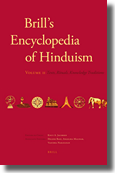 The second volume of the five volume Brill’s Encyclopedia of Hinduism
has now been published. It has been edited by Prof. Knut A. Jacobsen, University of Bergen, Norway (Editor-in-Chief for the entire series of Brill’s Encyclopedia of Hinduism), assisted by Dr.
Helene Basu, University of Münster, Germany, Dr. Angelika Malinar, University of
Zürich, Switzerland, and Dr. Vasudha Narayanan, University of Florida, USA.
Volume II builds upon the first
volume by examining the sacred languages of Hinduism and its major
religious texts, literary genres, and scholarly traditions as well as
the vernaculars. It further explores the ritual traditions, including
domestic rituals, mantras, and intoxication. In addition, performance
and the arts such as martial arts, dance, and film feature prominently.
The last section extensively investigates the meaning, connotations, and
use of some forty leading concepts like karman, the self, renunciation,
asceticism, meditation, and liberation. Sacred Texts, Ritual Traditions,
Arts, Concepts is the second of ultimately five volumes, which will
include an index in the final volume.
The second volume of the five volume Brill’s Encyclopedia of Hinduism
has now been published. It has been edited by Prof. Knut A. Jacobsen, University of Bergen, Norway (Editor-in-Chief for the entire series of Brill’s Encyclopedia of Hinduism), assisted by Dr.
Helene Basu, University of Münster, Germany, Dr. Angelika Malinar, University of
Zürich, Switzerland, and Dr. Vasudha Narayanan, University of Florida, USA.
Volume II builds upon the first
volume by examining the sacred languages of Hinduism and its major
religious texts, literary genres, and scholarly traditions as well as
the vernaculars. It further explores the ritual traditions, including
domestic rituals, mantras, and intoxication. In addition, performance
and the arts such as martial arts, dance, and film feature prominently.
The last section extensively investigates the meaning, connotations, and
use of some forty leading concepts like karman, the self, renunciation,
asceticism, meditation, and liberation. Sacred Texts, Ritual Traditions,
Arts, Concepts is the second of ultimately five volumes, which will
include an index in the final volume.
More information.
• Asiaportal In Focus on Danish media and Pakistani Islam
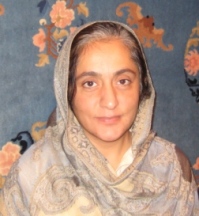 Over the past decade, the news about Pakistan in the Danish media has been mostly related to the acts of religious extremism, terrorism and radicalism whereas a more rampant folk Islam practised by the majority of Pakistani people is completely missing from the media scene.
In Focus, the web blog published at the Asia Portal by the Nordic Institute of Asian Studies (NIAS), on 5 October posted an article by Uzma Rehman, with a PhD from the Department of History of Religions, Copenhagen University, where she takes a look at the major elements about the Pakistani Islam emphasized in the Danish media and compare them with the tradition of Sufi shrines and saint-veneration practiced in Pakistan for centuries. Go for Uzma Rehman’s blog article.
Over the past decade, the news about Pakistan in the Danish media has been mostly related to the acts of religious extremism, terrorism and radicalism whereas a more rampant folk Islam practised by the majority of Pakistani people is completely missing from the media scene.
In Focus, the web blog published at the Asia Portal by the Nordic Institute of Asian Studies (NIAS), on 5 October posted an article by Uzma Rehman, with a PhD from the Department of History of Religions, Copenhagen University, where she takes a look at the major elements about the Pakistani Islam emphasized in the Danish media and compare them with the tradition of Sufi shrines and saint-veneration practiced in Pakistan for centuries. Go for Uzma Rehman’s blog article.
• More information about South Asia related
research at Swedish and Nordic universities
See SASNET’s page, http://www.sasnet.lu.se/research.html
• 2010 Linnaeus Palme Exchange programme grants to South Asia collaboration projects
 On 27 April 2010, decisions
were taken about Linnaeus Palme exchange programme grants
for 2009-10.
The tenth round of applications for Linnaeus Palme grants,
for the contract period 1 July 2010–
30 June 2011, were decided upon by the Swedish International Programme
Office for Education and Training. Out of 231
projects given grants, 4 are with Bangladesh, 17 with India, 3
with Nepal, 2 with Pakistan, and 1 with Sri Lanka.
On 27 April 2010, decisions
were taken about Linnaeus Palme exchange programme grants
for 2009-10.
The tenth round of applications for Linnaeus Palme grants,
for the contract period 1 July 2010–
30 June 2011, were decided upon by the Swedish International Programme
Office for Education and Training. Out of 231
projects given grants, 4 are with Bangladesh, 17 with India, 3
with Nepal, 2 with Pakistan, and 1 with Sri Lanka.
Go
for the full list of Linnaeus Palme grants 2010 (as a pdf-file).
See
separate SASNET list on South Asia related projects.
• Time to apply for next year’s Linnaeus palme programme grants
Applications for the Linnaeus Palme exchange programme for the
period 1 July 2010 – 30 June 2011 should be delivered
to the International Office or equivalent authority at the
local Swedish university not later than 1 December, 2009.
Decisions will be taken by the International Programme Office for
Education and Training during the spring 2010. More information.
• Masters programmes at Lund University’s International Institute
for Industrial Environmental Economics
The International Institute
for Industrial Environmental Economics (IIIEE) at Lund University offers a 120 ECTS credits
Master of Science programme on Environmental
Management and Policy. This combined online and onsite programme (details below) aims to prepare professionals with expertise in environmental strategies for careers as executives, analysts, decision makers, researchers and consultants. It concentrates on creating preventative environmental solutions for industry and governments, understanding the public and industrial societal systems, and applying appropriate policies and measures to solve integrated environmental problems. The coming programme starts in October 2011 with online distance courses, followed in August 2012 by 9 months of on-site learning at the IIIEE building in the centre of Lund, then 4 months of thesis research until graduation in September 2013. More
information on the programme.
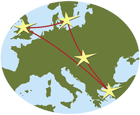 IIIEE is also a partner institution in the Erasmus
Mundus programme on Environmental Science, Policy and Management (MESPOM), the next programme will be for the period 2011–2013. Like other Erasmus Mundus programmes
MESPOM provide scholarships to outstanding students from countries
outside the EU. MESPOM is coordinated by IIIEE and operated by a consortium of four leading European institutions for environmental research and postgraduate education which include, in addition to IIIEE, the Central European University (Hungary), the University of the Aegean (Greece) and the University of Manchester (UK) . MESPOM is supported by the Erasmus Mundus programme of the European Commission.
IIIEE is also a partner institution in the Erasmus
Mundus programme on Environmental Science, Policy and Management (MESPOM), the next programme will be for the period 2011–2013. Like other Erasmus Mundus programmes
MESPOM provide scholarships to outstanding students from countries
outside the EU. MESPOM is coordinated by IIIEE and operated by a consortium of four leading European institutions for environmental research and postgraduate education which include, in addition to IIIEE, the Central European University (Hungary), the University of the Aegean (Greece) and the University of Manchester (UK) . MESPOM is supported by the Erasmus Mundus programme of the European Commission.
Application deadlines for the 2011-2013 study period are January 3, 2011 for the applicants seeking Erasmus Mundus scholarships types A and B or other financial assistance from the MESPOM Consortium or CEU (including fee waivers), and April 30, 2011 for the applicants who do not seek or are not eligible for Erasmus Mundus scholarships or other forms of financial assistance from CEU or the MESPOM Consortium
More information
on the programme.
• Spring 2011 course on Changing India and Ourselves for teacher training students in Stockholm
 The Dept. of Educational Science with an emphasis on Humanities and Social Science (UHS), Stockholm University organises a 15 ECTS credits course titled ”Changing India and Ourselves” every year during a part of the Spring semester (January–March). The course has been developed out of a course titled ”Changing South” that Dr. Jim Walch has run successfully at the Stockholm Institute of Education since 1993. The course consists of two parts, first five weeks field studies in Tamil Nadu, India, where the students should confront, analyse and reflect upon the various patterns of poverty and domination that can be found in the South and in the relation to the richer parts of the world; and then five weeks literature studies and seminars in Sweden. The next course will be run in the Spring 2011. Last date for applications is 15 October 2010. More information.
The Dept. of Educational Science with an emphasis on Humanities and Social Science (UHS), Stockholm University organises a 15 ECTS credits course titled ”Changing India and Ourselves” every year during a part of the Spring semester (January–March). The course has been developed out of a course titled ”Changing South” that Dr. Jim Walch has run successfully at the Stockholm Institute of Education since 1993. The course consists of two parts, first five weeks field studies in Tamil Nadu, India, where the students should confront, analyse and reflect upon the various patterns of poverty and domination that can be found in the South and in the relation to the richer parts of the world; and then five weeks literature studies and seminars in Sweden. The next course will be run in the Spring 2011. Last date for applications is 15 October 2010. More information.
• More information about South Asia related
education at Swedish and Nordic universities
See SASNET’s page, http://www.sasnet.lu.se/education.html
• Copenhagen PhD workshop on Globalisation and the Role of Labour in Asia
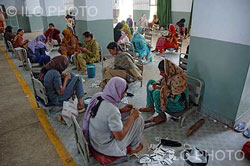 A PhD workshop on ”Globalisation and the Role of Labour in Asia” will be held in Copenhagen 11–14 October 2010. It is organised by the Doctoral School of Organisation Management Studies, at the Dept. of Intercultural Communication and Management, Copenhagen Business School (CBS), Denmark, in collaboration with the Graduate School of International Development Studies, Roskilde University.
A PhD workshop on ”Globalisation and the Role of Labour in Asia” will be held in Copenhagen 11–14 October 2010. It is organised by the Doctoral School of Organisation Management Studies, at the Dept. of Intercultural Communication and Management, Copenhagen Business School (CBS), Denmark, in collaboration with the Graduate School of International Development Studies, Roskilde University.
The purpose of the PhD course is to bring speakers from different disciplines and analyses of Asian labour together to get an understanding of ongoing research in different fields: sociology, anthropology, labour history, industrial relations, human resource development, cross-cultural organisation, gender relations, corporate social responsibility etc. The focus will be on interdisciplinary research, differences in theories and methods analysing Asian labour. More information.
• Second Dissertation-to-Book Workshop at Madison
 For the second year, an American South Asia Centers' Dissertation-to-Book Workshop will be held in Madison, Wisconsin, USA, 13–15 October 2010. It is jointly sponsored by the American Overseas Research Centers in India (AIIS), Pakistan (AIPS), Bangladesh (AIBS) and Sri Lanka (AISLS). The aim is to assist recent PhD scholars devoted to the study of South Asia with the revision of their doctoral dissertations as books. The first “dissertation into book” workshop was held in 2009, and was very successful (see report). The workshop coincides with the Annual Conference on South Asia in Madison (see below), and will feature dynamic discussion and feedback opportunities as well as mentorship from senior faculty and recent successful authors.
For the second year, an American South Asia Centers' Dissertation-to-Book Workshop will be held in Madison, Wisconsin, USA, 13–15 October 2010. It is jointly sponsored by the American Overseas Research Centers in India (AIIS), Pakistan (AIPS), Bangladesh (AIBS) and Sri Lanka (AISLS). The aim is to assist recent PhD scholars devoted to the study of South Asia with the revision of their doctoral dissertations as books. The first “dissertation into book” workshop was held in 2009, and was very successful (see report). The workshop coincides with the Annual Conference on South Asia in Madison (see below), and will feature dynamic discussion and feedback opportunities as well as mentorship from senior faculty and recent successful authors.
More information on the 2010 workshop.
• 39th Annual Madison Conference on South Asia
 The 39th Annual Madison Conference on South Asia will be held 14 – 17 October 2010. This year the Conference is pleased to recognize and
celebrate 50 Years of South Asia at the University of Wisconsin-Madison. The conference is hosted by the university’s Center for South Asia, and attracts over 500 scholars and specialists on South Asia and is a great venue for intellectual, professional, and social exchange. Panels, roundtables,pre-conferences and individual papers on all topics pertaining to South Asian studies are welcome. The conference features nearly 100 academic panels and roundtables, as well as association meetings and special events ranging from performances to film screenings. Another important component of the conference is our exhibit space. University presses, independent publishers, and non-profit organizations provide the conference participants with high quality resources and the best publications on South Asian topics. The exhibit space is also a great opportunity to meet with other scholars and to connect with the booksellers. Venue: Madison Concourse Hotel, 1 West Dayton St., Madison, Wisconsin, USA. More information.
The 39th Annual Madison Conference on South Asia will be held 14 – 17 October 2010. This year the Conference is pleased to recognize and
celebrate 50 Years of South Asia at the University of Wisconsin-Madison. The conference is hosted by the university’s Center for South Asia, and attracts over 500 scholars and specialists on South Asia and is a great venue for intellectual, professional, and social exchange. Panels, roundtables,pre-conferences and individual papers on all topics pertaining to South Asian studies are welcome. The conference features nearly 100 academic panels and roundtables, as well as association meetings and special events ranging from performances to film screenings. Another important component of the conference is our exhibit space. University presses, independent publishers, and non-profit organizations provide the conference participants with high quality resources and the best publications on South Asian topics. The exhibit space is also a great opportunity to meet with other scholars and to connect with the booksellers. Venue: Madison Concourse Hotel, 1 West Dayton St., Madison, Wisconsin, USA. More information.
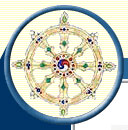 • Fifth Annual Himalayan Policy Research Conference at Madison
• Fifth Annual Himalayan Policy Research Conference at Madison
The Fifth Annual Himalayan Policy Research Conference at Madison will again be held as a pre-conference to the University of Wisconsin's 39th Conference on South Asia. It is organised by the Nepal Study Center (NSC) at the
University of New Mexico in
Albuquerque on Thursday 14 October 2010. One of the goals of the annual HPR conference is to form an Association for Himalayan Policy Research. This year’s conference will have a special focus on the SAARC countries (South Asia Association for Regional Cooperation). More information.
• 5th Annual Nordic NIAS Council Conference in Copenhagen
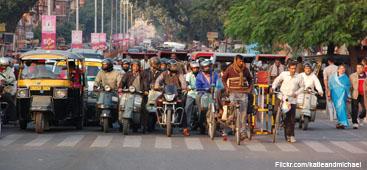 The 5th Annual Nordic NIAS Council Conference will be held in Copenhagen 28–29 October 2010. The theme for the 2010 conference, jointly organised by the Asia Research Centre at Copenhagen Business School (CBS) and the Nordic Institute of Asian Studies (NIAS), will be ”Asia in the 21st Century: Business, Politics and Regional Dynamics”. The conference is then immediately followed by a
Nordic and International PhD Course entitled ”Business, Politics and Regional Dynamics in Contemporary Asia: New Theoretical and Methodological Perspectives”, to be held 30 October – 1 November 2010. International keynote speakers include Dr. Ashwani Saith from the Institute of Social Studies in The Hague, Netherlands. Venue: Asia Research Centre, CBS, Dalgas Have 15, Frederiksberg, Copenhagen. More information.
The 5th Annual Nordic NIAS Council Conference will be held in Copenhagen 28–29 October 2010. The theme for the 2010 conference, jointly organised by the Asia Research Centre at Copenhagen Business School (CBS) and the Nordic Institute of Asian Studies (NIAS), will be ”Asia in the 21st Century: Business, Politics and Regional Dynamics”. The conference is then immediately followed by a
Nordic and International PhD Course entitled ”Business, Politics and Regional Dynamics in Contemporary Asia: New Theoretical and Methodological Perspectives”, to be held 30 October – 1 November 2010. International keynote speakers include Dr. Ashwani Saith from the Institute of Social Studies in The Hague, Netherlands. Venue: Asia Research Centre, CBS, Dalgas Have 15, Frederiksberg, Copenhagen. More information.
• First Students’ Conference on Bengal Related Studies in Halle
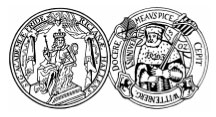 The
First Students’ Conference on Bengal Related Studies will be held in Halle (Saale), Germany, on 30–31
October 2010. It is hosted by the South Asia Seminar, Institute of Oriental Studies, Martin Luther University Halle-Wittenberg along with the association Bengal Link e.V. The aim of the conference is to provide an inter-disciplinary venue for young scholars who focus on the Bengali regions in their studies.
Halle-Wittenberg is one of the two German universities where research on the Bengal regions, Bengali language and culture has been an integral part for a long time. After the emergence of numerous studies on the Bengal regions from other disciplines (e.g. Social Anthropology, Sociology, Development Studies, Urban Planning) the conference organisers realised the necessity of giving young scholars an option to discuss their various topics and research approaches among each other and of building up an interdisciplinary network for Bengal Related Studies.
The
First Students’ Conference on Bengal Related Studies will be held in Halle (Saale), Germany, on 30–31
October 2010. It is hosted by the South Asia Seminar, Institute of Oriental Studies, Martin Luther University Halle-Wittenberg along with the association Bengal Link e.V. The aim of the conference is to provide an inter-disciplinary venue for young scholars who focus on the Bengali regions in their studies.
Halle-Wittenberg is one of the two German universities where research on the Bengal regions, Bengali language and culture has been an integral part for a long time. After the emergence of numerous studies on the Bengal regions from other disciplines (e.g. Social Anthropology, Sociology, Development Studies, Urban Planning) the conference organisers realised the necessity of giving young scholars an option to discuss their various topics and research approaches among each other and of building up an interdisciplinary network for Bengal Related Studies.
 Among the participants are Nandadulal Nandi, University of Zurich, Switzerland, who will present a paper on ”The ‘Poet's Religion’, as conceived by Rabindranath Tagore in the context of the Bengali Renaissance”; Sourodip Lahiri, Jadavpur University, Kolkata, India, who will present a paper on ”Bengali cultural nodes in the context of changing urban landscape”; Lisa Zander, Martin Luther University Halle-Wittenberg, who will present a paper on ”Muhammad Yunus and his Grameen Bank in Bangladeshi newspapers after the announcement of the Nobel Peace Prize”; and Mahmudul Sumon, Jahangirnagar University, Bangladesh, who will present a paper on ”Mapping the “Other”: The category of ‘primitive’/ ‘aboriginal’/ ‘adivasi’ from colony to post-colony in Bangladesh”.
Among the participants are Nandadulal Nandi, University of Zurich, Switzerland, who will present a paper on ”The ‘Poet's Religion’, as conceived by Rabindranath Tagore in the context of the Bengali Renaissance”; Sourodip Lahiri, Jadavpur University, Kolkata, India, who will present a paper on ”Bengali cultural nodes in the context of changing urban landscape”; Lisa Zander, Martin Luther University Halle-Wittenberg, who will present a paper on ”Muhammad Yunus and his Grameen Bank in Bangladeshi newspapers after the announcement of the Nobel Peace Prize”; and Mahmudul Sumon, Jahangirnagar University, Bangladesh, who will present a paper on ”Mapping the “Other”: The category of ‘primitive’/ ‘aboriginal’/ ‘adivasi’ from colony to post-colony in Bangladesh”.
More information about the Halle conference.
• Colombo conference on Managing Diversity, Reconciliation & Development
 A conference entitled ”Reflections 2010: Managing Diversity, Reconciliation & Development” will be held in Colombo, Sri Lanka, 1–3 November 2010. It is organised by FLICT (Facilitating Local Initiatives for Conflict Transformation), a project in the field of peace building and conflict transformation based on a bilateral cooperation agreement between the Democratic Socialist Republic of Sri Lanka and the Federal Republic of Germany.
The project is managed by the German Technical Cooperation (GTZ). More information about FLICT.
A conference entitled ”Reflections 2010: Managing Diversity, Reconciliation & Development” will be held in Colombo, Sri Lanka, 1–3 November 2010. It is organised by FLICT (Facilitating Local Initiatives for Conflict Transformation), a project in the field of peace building and conflict transformation based on a bilateral cooperation agreement between the Democratic Socialist Republic of Sri Lanka and the Federal Republic of Germany.
The project is managed by the German Technical Cooperation (GTZ). More information about FLICT.
In the recent past Sri Lanka has seen renewed interest in effective interventions around reconciliation and development. Such efforts will greatly benefit from research and experience sharing. The opportunity presented by the cessation of hostilities, makes this all the more relevant and timely. In this context, the conference is being organized to bring together persons interested in the subject area; practitioners, educators, trainers, students and policy makers – both local and international. The papers presented will cover the following themes, relevant to a post-war situation: – Reconciliation; –
Human Rights; –
Governance; –
Development; –
Diversity; –
Change Management; and –
Gender. Full information about the conference.
• Chiang Mai conference on Asian Borderlands: Enclosure, Interaction and Transformation
 The 2nd Conference of the Asian Borderlands Research Network will be held at Chiang Mai University (RCSD) in Thailand,
5–7 November 2010. The theme for conference will be ”Asian Borderlands: Enclosure, Interaction and Transformation”. The background is that whereas borderland studies have quickly developed in Africa, Europe and North America, the field is still in its infancy in Asia. The Chiang Mai conference intends to encourage scholarship that looks across Asian borders. It takes its cue from an important new book by James C. Scott, The Art of Not Being Governed: An Anarchist History of Upland Southeast Asia (Yale UP, 2009). In this book, Scott focuses on the mountainous regions of the Himalayas and its lower ranges that run from the Central Highlands in Vietnam, most of Laos, Northern Thailand, Southwest China, Northern Burma, Northeast India, Eastern Bangladesh, Bhutan, Nepal and Tibet. The 200 million people living in this huge region (over 15 million km2) are geographically dispersed and culturally diverse, yet they share crucial cultural, economic and social characteristics: hill agriculture, physical mobility, relatively egalitarian social structures, as well as commonalities in material culture and outlook. National borders often appear utterly arbitrary to them as many groups spill across two or more national borders. In this way they distinguish themselves from the lowland populations who dominate the states in which they live. Scott refers to this region as ‘Zomia', a term coined by Willem van Schendel (2002/2005). More information.
The 2nd Conference of the Asian Borderlands Research Network will be held at Chiang Mai University (RCSD) in Thailand,
5–7 November 2010. The theme for conference will be ”Asian Borderlands: Enclosure, Interaction and Transformation”. The background is that whereas borderland studies have quickly developed in Africa, Europe and North America, the field is still in its infancy in Asia. The Chiang Mai conference intends to encourage scholarship that looks across Asian borders. It takes its cue from an important new book by James C. Scott, The Art of Not Being Governed: An Anarchist History of Upland Southeast Asia (Yale UP, 2009). In this book, Scott focuses on the mountainous regions of the Himalayas and its lower ranges that run from the Central Highlands in Vietnam, most of Laos, Northern Thailand, Southwest China, Northern Burma, Northeast India, Eastern Bangladesh, Bhutan, Nepal and Tibet. The 200 million people living in this huge region (over 15 million km2) are geographically dispersed and culturally diverse, yet they share crucial cultural, economic and social characteristics: hill agriculture, physical mobility, relatively egalitarian social structures, as well as commonalities in material culture and outlook. National borders often appear utterly arbitrary to them as many groups spill across two or more national borders. In this way they distinguish themselves from the lowland populations who dominate the states in which they live. Scott refers to this region as ‘Zomia', a term coined by Willem van Schendel (2002/2005). More information.
• Stockholm symposium on Education For Rural Tranformation
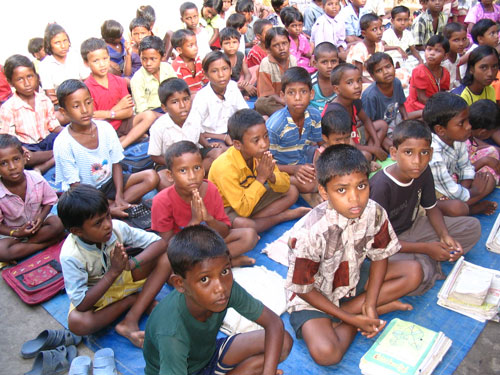 An International Symposium entitled ”Education For Rural Tranformation (ERT)” will be held in Stockholm 8–10 November 2010. It is being organised by Professor Vinayagum Chinapah at the Institute of International Education (IIE), Department of Education, Stockholm University. The symposium will build upon results from an ongoing research project at IIE led by Prof. Chinapah, comparing the ERT situation in India and China (more information), but also on the ERT report that was prepared by researchers under the auspices of UNESCO International Research and Training Center for Rural Education (INRULED) in 2001 (read the report).
An International Symposium entitled ”Education For Rural Tranformation (ERT)” will be held in Stockholm 8–10 November 2010. It is being organised by Professor Vinayagum Chinapah at the Institute of International Education (IIE), Department of Education, Stockholm University. The symposium will build upon results from an ongoing research project at IIE led by Prof. Chinapah, comparing the ERT situation in India and China (more information), but also on the ERT report that was prepared by researchers under the auspices of UNESCO International Research and Training Center for Rural Education (INRULED) in 2001 (read the report).
The papers and contributions from this ERT Symposium will later be published. Professor Zhou Nanzhao will coordinate the country thematic papers and contributions from China, Dr. Karanan Pushpanadham, for the country thematic papers and contributions from India, and Professor Vinayagum Chinapah for the international thematic papers and contributions.
Papers should be submitted before October 15, 2010.
IIE will sponsor some 8-10 international participants mostly from India and China and selected invited resource persons. More information.
• Asian Dynamics Initiative conference on Asian Diversity in a Global Context
 The Asian Dynamics Initiative (ADI) at the University of Copenhagen invites to an international three-day conference entitled ”Asian Diversity in a Global Context” 11–13 November 2010. The opening day of the conference is allocated to a big public event with invited keynote speakers. The following two days will be made up of 10-12 parallel panels and workshops under the common theme ”Asian
Diversity in a Global Context”. The goal is to generate deeper and fuller insights into the political, social, cultural and economic changes facing Asia in the 21st century. Some of the panels are specifically related to South Asia:
The Asian Dynamics Initiative (ADI) at the University of Copenhagen invites to an international three-day conference entitled ”Asian Diversity in a Global Context” 11–13 November 2010. The opening day of the conference is allocated to a big public event with invited keynote speakers. The following two days will be made up of 10-12 parallel panels and workshops under the common theme ”Asian
Diversity in a Global Context”. The goal is to generate deeper and fuller insights into the political, social, cultural and economic changes facing Asia in the 21st century. Some of the panels are specifically related to South Asia:
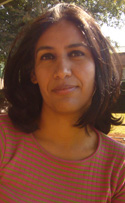 – Governing Difference: Explorations in Identity and Equality in the Global South, convened by Dr. Ravinder Kaur (photo to the right).
– Governing Difference: Explorations in Identity and Equality in the Global South, convened by Dr. Ravinder Kaur (photo to the right).
– The Transmission of Sanskrit Medical Literature in India, convened by Dr. Kenneth Zysk
– Indigenous people in the 21st Century Asia: Identities and Stategies for self-determination, convened by Dr. Peter B. Andersen
'Asian Diversity in a Global Context' is the third in the series of annual conferences initiated by ADI and the University of Copenhagen in 2008. ADI aims at expanding research and teaching on Asia as well as strengthening the university's global networks in studies of Asia.
More information about the Asian Diversity in a Global Context conference.
• Asian Diversity in a Global Context PhD workshop for graduate students
The Asian Diversity in a Global Context conference (see above) will be directly followed by a tw o-day PhD workshop for graduate students on 14-15 November 2010. The workshop, open to PhD students at any stage of their PhD projects, has the theme ”How can we capture specificities with our approaches and methods?”
It is fully integrated with the conference held on the previous days. PhD students are therefore invited to both submit abstracts for a conference paper in the conference and/or a paper at the PhD workshop. Conference papers must however relate to one of the themes of the conference panels and workshops. Since the conference and the PhD workshop are integrated, participation in both activities will not only expose the participants to a wide variety of international expertise from the humanities and social sciences but also provide an opportunity to interact with both senior and junior scholars as well as other PhD students.
o-day PhD workshop for graduate students on 14-15 November 2010. The workshop, open to PhD students at any stage of their PhD projects, has the theme ”How can we capture specificities with our approaches and methods?”
It is fully integrated with the conference held on the previous days. PhD students are therefore invited to both submit abstracts for a conference paper in the conference and/or a paper at the PhD workshop. Conference papers must however relate to one of the themes of the conference panels and workshops. Since the conference and the PhD workshop are integrated, participation in both activities will not only expose the participants to a wide variety of international expertise from the humanities and social sciences but also provide an opportunity to interact with both senior and junior scholars as well as other PhD students.
This workshop is organized by a group of researchers at the University of Copenhagen who have participated in the development of the university's Asian Dynamics Initiative and in organizing the ‘Asian Diversity in a Global Context' conference.
The members of the workshop faculty are a number of specially invited international mentors (including Prof. Paul Bailey, University of Edinburgh, and Prof. Nandini Sundar, Delhi University/Yale), and three mentors from the University of Copenhagen (Associate Professor Birgitte R. Sørensen, Anthropology, Associate Professor Ravinder Kaur, South Asian Studies, and Prof. Jørgen Delman, China Studies).
More information about the PhD Course and registration.
• DevNet conference on Challenges to Sustainable Development
 The Swedish research network on sustainable development, DevNet (based at Uppsala Centre for Sustainable Development, CSD) invites to conference entitled ”Nature, Poverty and Power
Assessing Challenges to Sustainable Development” to be held in Uppsala 25–26 November 2010. The aim behind this interdisciplinary
conference will be to explore the interrelationship between natural resource use, poverty and
power.
Amita Baviskar from the Institute of Economic Growth in Delhi, India will hold one of the key-note lectures. Eight parallel sessions under the following
headings are open for presentations by scholars, development practitioners and activists:
– Sustainable development as a problem of global distribution; – Community-based and community-driven natural resource management – a tool for poverty
reduction and sustainable development?; – Movement and the neoliberal state – probing the politics and contestations of
poverty/displacement; – Health, resilience and poverty; – Global patterns of production and consumption, and their effects on people in poverty; – Cities, marginalisation, rights and citizenship; – The politics of climate change, gender and development; and – Bare necessity: subsistence and displacement at the resource frontier. More information.
The Swedish research network on sustainable development, DevNet (based at Uppsala Centre for Sustainable Development, CSD) invites to conference entitled ”Nature, Poverty and Power
Assessing Challenges to Sustainable Development” to be held in Uppsala 25–26 November 2010. The aim behind this interdisciplinary
conference will be to explore the interrelationship between natural resource use, poverty and
power.
Amita Baviskar from the Institute of Economic Growth in Delhi, India will hold one of the key-note lectures. Eight parallel sessions under the following
headings are open for presentations by scholars, development practitioners and activists:
– Sustainable development as a problem of global distribution; – Community-based and community-driven natural resource management – a tool for poverty
reduction and sustainable development?; – Movement and the neoliberal state – probing the politics and contestations of
poverty/displacement; – Health, resilience and poverty; – Global patterns of production and consumption, and their effects on people in poverty; – Cities, marginalisation, rights and citizenship; – The politics of climate change, gender and development; and – Bare necessity: subsistence and displacement at the resource frontier. More information.
• Sambalpur seminar on Research Methods in Social Sciences
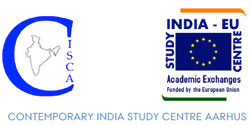 An international seminar on ”Revisiting Research Methods in Social Sciences” will be held in Sambalpur, Orissa state, India, 25–27 November 2010. The seminar is jointly organised by Sambalpur University and the Contemporary India Study Centre Aarhus (CISCA) at Aarhus University, Denmark. It focuses on existing research paradigms within the field of Ethnography, based on the fact that India has its own distinctive anthropological traditions. Central questions such as “Who is represented by whom and how?” or “What can and shall we document and represent – being aware of our own limits in experiencing, describing and analysing ethnographic contexts in an all-encompassing way?” keep puzzling and troubling researchers. The seminar is convened are Prof. Deepak Kumar Behera, Dr. Jens Seeberg, and Dr. Uwe Skoda. Abstracts should be submitted before 10 October 2010. More information.
An international seminar on ”Revisiting Research Methods in Social Sciences” will be held in Sambalpur, Orissa state, India, 25–27 November 2010. The seminar is jointly organised by Sambalpur University and the Contemporary India Study Centre Aarhus (CISCA) at Aarhus University, Denmark. It focuses on existing research paradigms within the field of Ethnography, based on the fact that India has its own distinctive anthropological traditions. Central questions such as “Who is represented by whom and how?” or “What can and shall we document and represent – being aware of our own limits in experiencing, describing and analysing ethnographic contexts in an all-encompassing way?” keep puzzling and troubling researchers. The seminar is convened are Prof. Deepak Kumar Behera, Dr. Jens Seeberg, and Dr. Uwe Skoda. Abstracts should be submitted before 10 October 2010. More information.
• Indo-Global Education Summit 2010 in Hyderabad
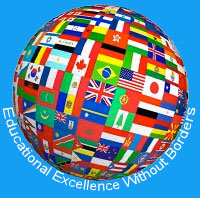 The Indus Foundation, a non-profit making educational organization dedicated to the promotion of higher education in India, organises the
Indo-Global Education Summit 2010 in Hyderabad, India, 3–7 December 2010. This will be a sequel to the Indo-American Education Summit held in 2009. The Summit 2010 will have sessions on Engineering & IT, Business & Management, Life Sciences & Biomedicine, Arts & Humanities, Social Sciences, and Natural Sciences.
The Indus Foundation, a non-profit making educational organization dedicated to the promotion of higher education in India, organises the
Indo-Global Education Summit 2010 in Hyderabad, India, 3–7 December 2010. This will be a sequel to the Indo-American Education Summit held in 2009. The Summit 2010 will have sessions on Engineering & IT, Business & Management, Life Sciences & Biomedicine, Arts & Humanities, Social Sciences, and Natural Sciences.
There will be one-on-one meetings between representatives of foreign universities and those of Indian institutions for academic collaborations. There will also be one-on-one meetings between representatives of foreign universities and Indian students. The Summit 2010 is specifically designed for university chancellors, presidents, provosts, deans, enrollment/recruitment officers, and their executive-level team members. The organisers expect a participation by an estimated 200 top universities from around the World, and 1000 Indian educational institutions.
More information about the Indo-Global Education Summit 2010.
 The US-based Indus Foundation has a network of offices in India covering the major cities including Ahmedabad, Amritsar, Bangalore, Chandigarh, Chennai, Eluru, Hyderabad, Jaipur, Jallandhar, Kakinada, Kanpur, Kochi, Kolkata, Ludhiana, Lucknow, Meerut, Mehsana, Nagpur, Nashik, New Delhi, Noida, Panchkula, Pilibhit, Pune, Sambalpur, Surat, Thane, Trivandrum, Udaipur, Vadodara, Vallabh Vidyanagar, Vijayawada, and Visakhapatnam. Over the years, the Foundation has emerged as a leading recruiter of well-qualified and financially able Indian students for study in foreign universities.
The US-based Indus Foundation has a network of offices in India covering the major cities including Ahmedabad, Amritsar, Bangalore, Chandigarh, Chennai, Eluru, Hyderabad, Jaipur, Jallandhar, Kakinada, Kanpur, Kochi, Kolkata, Ludhiana, Lucknow, Meerut, Mehsana, Nagpur, Nashik, New Delhi, Noida, Panchkula, Pilibhit, Pune, Sambalpur, Surat, Thane, Trivandrum, Udaipur, Vadodara, Vallabh Vidyanagar, Vijayawada, and Visakhapatnam. Over the years, the Foundation has emerged as a leading recruiter of well-qualified and financially able Indian students for study in foreign universities.
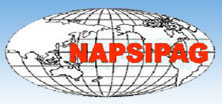 • 7th International NAPSIPAG Conference in Thiruvananthapuram
• 7th International NAPSIPAG Conference in Thiruvananthapuram
The Network of Asia Pacific Schools and Institutes of Public Administration and Governance (NAPSIPAG) holds its 7th International Conference in Thiruvananthapuram, India, 11–13 December 2010. The theme for the 2010 NAPSIPAG conference
will be ”Reaching Out to People.
Achieving Millennium Development Goals through Innovative Public Service Delivery”. NAPSIPAG has a mission to enhance the quality of governance and public administration in the Asia-Pacific region by building the capacities of its national governments to promote good governance, through practical, relevant, and responsive training, education, and research. The secretariat is based at the
Center for the Study of Law and Governance,
Jawaharlal Nehru University (JNU), New Delhi, India. Other South Asian member institutions include University of Dhaka, Bangladesh;
Indian Institute of Management (IIM) Ahmedabad, India; and Tribhuvan University, Nepal. Completed papers should reach the secretariat by 15 October 2010. More information.
• Delhi conference on Gender, Sexualities and
Multiple Modernities
The Department of English at
Delhi University, India, invites for its annual conference on ”Postfeminist Postmortems? Gender, Sexualities and
Multiple Modernities”, to be held in Delhi 14–16 February 2011. The
conference will seek to understand the complex interactions of
gender/sexualities with a large array of social identifications including
race, class, nation and caste within the framework of modernities across
literatures, cinema, art, music, dance, photography and theatre in western
as well as in post/neo/colonial sites. Abstracts should be submitted before 31 October 31 2010. More information.
• Record number of panels for joint AAS/ICAS conference at Honolulu
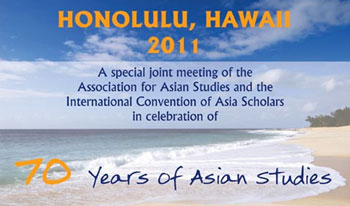 To celebrate its 70th anniversary, the Association for Asian Studies (AAS) is holding a special joint conference with the International Convention of Asia Scholars (ICAS) in Honolulu, Hawaii, USA, 31 March – 3 April 2011. Registration opened on September 15, 2010. Due to an unprecedented response to the Call for Papers, the AAS/ICAS conference has received more than twice as many panel proposals than in the prior year as well as over 1,000 individual paper proposals. To accommodate the large number of strong proposals, the organisers have expanded the number of panel sessions to 750. That is more than double the number of sessions at the last conference in Philadelphia – which had one of the largest number of conference registrations in AAS history.
To celebrate its 70th anniversary, the Association for Asian Studies (AAS) is holding a special joint conference with the International Convention of Asia Scholars (ICAS) in Honolulu, Hawaii, USA, 31 March – 3 April 2011. Registration opened on September 15, 2010. Due to an unprecedented response to the Call for Papers, the AAS/ICAS conference has received more than twice as many panel proposals than in the prior year as well as over 1,000 individual paper proposals. To accommodate the large number of strong proposals, the organisers have expanded the number of panel sessions to 750. That is more than double the number of sessions at the last conference in Philadelphia – which had one of the largest number of conference registrations in AAS history.
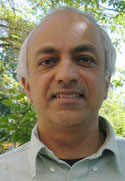 The Association for Asian Studies (AAS) is the largest society of its kind, with approximately 7,000 members worldwide, open to all persons interested in Asia. Its current President is Prof. K Sivaramakrishnan, Professor of Anthropology at Yale University (photo). ICAS was launched in 1995 as a joint project between AAS and the International Institute for Asian Studies (IIAS) in Netherlands. This transatlantic dialogue gradually matured and was thought of as a process involving American and European Asia scholars. Its main goals are to transcend the boundaries between disciplines, between nations studied, and between the geographic origins of the Asia scholars involved.
The Association for Asian Studies (AAS) is the largest society of its kind, with approximately 7,000 members worldwide, open to all persons interested in Asia. Its current President is Prof. K Sivaramakrishnan, Professor of Anthropology at Yale University (photo). ICAS was launched in 1995 as a joint project between AAS and the International Institute for Asian Studies (IIAS) in Netherlands. This transatlantic dialogue gradually matured and was thought of as a process involving American and European Asia scholars. Its main goals are to transcend the boundaries between disciplines, between nations studied, and between the geographic origins of the Asia scholars involved.
ICAS has grown into the largest biennial Asia studies event outside the US covering all subjects of Asia studies. Thus ICAS now has become the only major, regular Asia studies event to take place in Asia. On average the number of participants varies between thousand and fifteen hundred.
Venue for the joint conference: Hawai’i Convention Center, Kalakaua Avenue, Honolulu.
More information about the Honolulu conference.
• 2011 Yale Modern South Asia Workshop
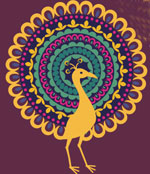 The 2011 Yale Modern South Asia Workshop will be held at Yale University 9–10 April 2011. This two-day workshop will feature the ongoing work of advanced graduate
students, postdoctoral scholars and junior scholars who challenge
theoretical and/or methodological conventions. The workshop will bring
together a community of young scholars for interdisciplinary conversation
on topics of current interest in modern South Asian studies. Papers from
all disciplines in the Humanities and Social Sciences will be presented,
particularly those that will foster cross-disciplinary dialogue and
exchange within the larger area studies rubric of South Asia. Session
organization will reflect the subject matter. Past papers have tackled
issues ranging from film and ethnomusicology to state formation and
election. The workshop is sponsored by the South Asian Studies Council at the Whitney and Betty
MacMillan Center for International and Area Studies at Yale. Abstracts should be submitted before 15 October 2010. More information.
The 2011 Yale Modern South Asia Workshop will be held at Yale University 9–10 April 2011. This two-day workshop will feature the ongoing work of advanced graduate
students, postdoctoral scholars and junior scholars who challenge
theoretical and/or methodological conventions. The workshop will bring
together a community of young scholars for interdisciplinary conversation
on topics of current interest in modern South Asian studies. Papers from
all disciplines in the Humanities and Social Sciences will be presented,
particularly those that will foster cross-disciplinary dialogue and
exchange within the larger area studies rubric of South Asia. Session
organization will reflect the subject matter. Past papers have tackled
issues ranging from film and ethnomusicology to state formation and
election. The workshop is sponsored by the South Asian Studies Council at the Whitney and Betty
MacMillan Center for International and Area Studies at Yale. Abstracts should be submitted before 15 October 2010. More information.
• Fifth SASA Conference at Virginia Commonwealth University
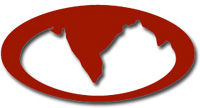 The Fifth Annual SASA (South Asian Studies Association) Conference will be held 8–10 April 2011 at the Virginia Commonwealth University in
Richmond, Virginia, USA. SASA conferences are remarkable for encouraging networking in a warm,
friendly environment. Conference registration includes a reception at the Virginia Museum of Fine Art (VMFA) housing an
extraordinary collection of both ancient and modern South Asian art,
including an extensive Himalayan collection.Papers are invited on topics exploring cultural and religious interchanges, entertainment cross-fertilization, economic globalization, and the diaspora experience. Deadline for submitting abstracts is January 10, 2011. More information.
The Fifth Annual SASA (South Asian Studies Association) Conference will be held 8–10 April 2011 at the Virginia Commonwealth University in
Richmond, Virginia, USA. SASA conferences are remarkable for encouraging networking in a warm,
friendly environment. Conference registration includes a reception at the Virginia Museum of Fine Art (VMFA) housing an
extraordinary collection of both ancient and modern South Asian art,
including an extensive Himalayan collection.Papers are invited on topics exploring cultural and religious interchanges, entertainment cross-fertilization, economic globalization, and the diaspora experience. Deadline for submitting abstracts is January 10, 2011. More information.
• 5th Journal of South Asian Popular Culture conference
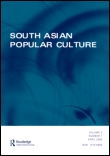 The Journal of South Asian Popular Culture invites to its
5th International Conference hosted at Temple University, Philadelphia, USA, 14–16 April 2011. The journal invites interdisciplinary contributions that address the 1970s in India and its legacies in popular culture with a particular emphasis on cinema. The 1970s was a period of political turmoil, labor unrest, crippling shortages, and profound civic despair. Still India's cinemas saw a renaissance. Hindi cinema, for instance, encountered daring new talent in writing, directing, and acting, and new kinds of engagement with ”India” emerged in popular film that, in the estimation of some, have not been matched in any decade since.
The Journal of South Asian Popular Culture invites to its
5th International Conference hosted at Temple University, Philadelphia, USA, 14–16 April 2011. The journal invites interdisciplinary contributions that address the 1970s in India and its legacies in popular culture with a particular emphasis on cinema. The 1970s was a period of political turmoil, labor unrest, crippling shortages, and profound civic despair. Still India's cinemas saw a renaissance. Hindi cinema, for instance, encountered daring new talent in writing, directing, and acting, and new kinds of engagement with ”India” emerged in popular film that, in the estimation of some, have not been matched in any decade since.
Workshop proceedings will be published in a special issue of the refereed Journal of South Asian Popular Culture (10:1 April 2012) co-edited by Priya Joshi and Rajinder Dudrah. Abstracts should be submitted before 1 November 2010. More information about the conference.
• Kathmandu conference on Better Governance:
Challenges and Prospects
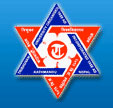 An International Conference entitled ”In Search of Better Governance:
Challenges and Prospects” will be held in Kathmandu, Nepal 29–30 June 2011. It is organised as part of the joint Norwegian-Nepalese research project “Governance Matters: Assessing, Diagnosing and Addressing Challenges of Governance in Nepal”, run by the Central Department of Public Administration (CDPA) at Tribhuvan University in Kathmandu, and the Dept. of Administration and Organization Theory, University of Bergen, Norway. The project is funded by the Norwegian Council of Universities' Committee for Development Research and Education (NUFU), an organisation supporting cooperation between universities, university colleges and research institutions in Norway and developing countries.
An International Conference entitled ”In Search of Better Governance:
Challenges and Prospects” will be held in Kathmandu, Nepal 29–30 June 2011. It is organised as part of the joint Norwegian-Nepalese research project “Governance Matters: Assessing, Diagnosing and Addressing Challenges of Governance in Nepal”, run by the Central Department of Public Administration (CDPA) at Tribhuvan University in Kathmandu, and the Dept. of Administration and Organization Theory, University of Bergen, Norway. The project is funded by the Norwegian Council of Universities' Committee for Development Research and Education (NUFU), an organisation supporting cooperation between universities, university colleges and research institutions in Norway and developing countries.
The Kathmandu conference focuses on the fact that pursuit for better governance has assumed prime position in developmental discourse as well as reform initiatives of all organizations working for the public welfare. It includes such issues as service delivery and responding to citizens’ needs and demands. However, a universally accepted and agreed upon definition of 'governance’ still remains elusive.
Abstracts should be submitted before 30 October 2010. More information about the conference.
• Other conferences connected to South Asian
studies arranged all over the World
See SASNET’s page, http://www.sasnet.lu.se/conferences.html#conf
Important lectures and seminars in Scandinavia
• Stockholm seminar on Regional Power and Maritime Security in Asia
 Dr. Jagannath Prasad Panda from the Institute for Defence Studies and Analyses (IDSA) in New Delhi, India participates in a seminar in Stockholm on ”Regional Power and Maritime Security in Asia”, on Thursday 7 October 2010, 10.00–12.00. The seminar is organised by the Stockholm Asia Security Group, a joint initiative of Institute for Security
and Development Policy (ISDP); Utrikespolitiska Institutet (UI); European Institute of Japanese Studies (EIJS) at Stockholm School of Economics; and Stockholm International Peace Research Institute (SIPRI).
Dr. Jagannath Prasad Panda from the Institute for Defence Studies and Analyses (IDSA) in New Delhi, India participates in a seminar in Stockholm on ”Regional Power and Maritime Security in Asia”, on Thursday 7 October 2010, 10.00–12.00. The seminar is organised by the Stockholm Asia Security Group, a joint initiative of Institute for Security
and Development Policy (ISDP); Utrikespolitiska Institutet (UI); European Institute of Japanese Studies (EIJS) at Stockholm School of Economics; and Stockholm International Peace Research Institute (SIPRI).
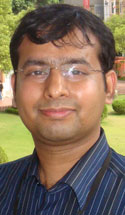 The seminar examines maritime security issues in Asia from a broader context from the Sea of Japan (East Sea) to the Indian Ocean. It will also discuss particular points of major regional power's maritime security policies with a view to considering their relevance in the construction of a system of cooperative maritime security in Asia.
The seminar examines maritime security issues in Asia from a broader context from the Sea of Japan (East Sea) to the Indian Ocean. It will also discuss particular points of major regional power's maritime security policies with a view to considering their relevance in the construction of a system of cooperative maritime security in Asia.
Dr. Panda, currently a guest researcher at ISDP in Nacka/Stockholm (more information), will give a presentation entitled ”Fighting for the Indian Ocean: Policy Directives of China and India”. Other speakers include
Prof. Tom Hart, China Economics Research Center at Stockholm School of Economic, Prof. Sato Yoichiro, Ritsumeikan Asia Pacific University, and Dr. Stefan Eklöf Amirell, Swedish Institute of International Affairs.
Interested should register their participation in advance to to Ms. Martina Klimesova. Venue for the seminar: ISDP, Västra Finnbodavägen 2, Stockholm-Nacka.
Full information about the seminar.
• Sida Development Area Symposium on Oceans and Climate Change
![]() The Swedish International Development Cooperation Agency Sida organizes a Development Area Symposium on Tuesday 12 October 2010. The one-day symposium focuses on ”Oceans and Climate Change – The scientific basis for meeting future challenges for coastal development and poverty reduction”.
The Swedish International Development Cooperation Agency Sida organizes a Development Area Symposium on Tuesday 12 October 2010. The one-day symposium focuses on ”Oceans and Climate Change – The scientific basis for meeting future challenges for coastal development and poverty reduction”.
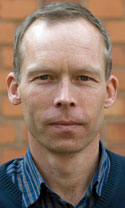 The main objective is to provide a review of the scientific basis of the major present and future challenges for ocean and coastal areas in the face of climate driven change. The intention is to provide a holistic approach and promote discussion on the effects on especially poor peoples livelihoods and the developmental challenges to counteract this by possible adaptation and mitigation measures. The seminar will be moderated by Meteorologist and former Swedish television profile Pär Holmberg.
The main objective is to provide a review of the scientific basis of the major present and future challenges for ocean and coastal areas in the face of climate driven change. The intention is to provide a holistic approach and promote discussion on the effects on especially poor peoples livelihoods and the developmental challenges to counteract this by possible adaptation and mitigation measures. The seminar will be moderated by Meteorologist and former Swedish television profile Pär Holmberg.
Among the speakers are Dr. Johan Rockström (photo) from the Swedish Resilience Centre (SRC) at Stockholm University, who will talk about ”Climate Change and Planetary Boundaries”, and Ms. Chandrika Sharma from the International Collective in Support of Fishworkers (ICSF) in Chennai, India, who will talk about ”Climate change in a Human Rights Perspective on Fishery”. Last date for registration is 7 October 2010.
(Please note that there is a limited number of participants to this symposium.)
Venue: Auditorium, Sida, Valhallavägen 199, Stockholm.
More information about the Sida Development Area Symposium.
• Copenhagen seminar on the
Peace Process in Nepal
 The Centre of Global South Asian Studies (CGSAS) and the Asian Dynamics Initiative (ADI) at the University of Copenhagen invites to a conversation seminar on ”The
Peace Process in Nepal” on Tuesday 12 october, 10.00–12.00. Professor Mahendra Lawoti (photo), currently at the Dept. of Political Science, Western Michigan University, USA, will talk about conflict, politics and the processes of constitution making in Nepal. He has written extensively on the subject of political transformation in Nepal. H.E. Mr. Vijay Karna, the Nepalese Ambassador to Scandinavia will also participate in the seminar.
Venue: Leifsgade 33, 3rd Floor, Copenhagen. All are welcome, but pre-registration is required. More information.
The Centre of Global South Asian Studies (CGSAS) and the Asian Dynamics Initiative (ADI) at the University of Copenhagen invites to a conversation seminar on ”The
Peace Process in Nepal” on Tuesday 12 october, 10.00–12.00. Professor Mahendra Lawoti (photo), currently at the Dept. of Political Science, Western Michigan University, USA, will talk about conflict, politics and the processes of constitution making in Nepal. He has written extensively on the subject of political transformation in Nepal. H.E. Mr. Vijay Karna, the Nepalese Ambassador to Scandinavia will also participate in the seminar.
Venue: Leifsgade 33, 3rd Floor, Copenhagen. All are welcome, but pre-registration is required. More information.
• Lund University’s Development Research Day 2010
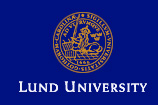 Lund University’s Development Research Day 2010 will take place on Thursday 14 October 2010. The theme for the day will be ”Rural Economies and Structural Transformations”, which reflects the research scope of this year’s sponsor, the Rural Development Group , a Lund University-based research group consisiting of members from the Depts. of Economic History, Social and Economic Geography, and Sociology, with collaborators also at Linköping University and nine African research institutes.
Lund University’s Development Research Day 2010 will take place on Thursday 14 October 2010. The theme for the day will be ”Rural Economies and Structural Transformations”, which reflects the research scope of this year’s sponsor, the Rural Development Group , a Lund University-based research group consisiting of members from the Depts. of Economic History, Social and Economic Geography, and Sociology, with collaborators also at Linköping University and nine African research institutes.
The plenary session on the day will be themed Rural Economies and Structural Transformation. Bruno Losch from the World Bank (RuralStruc program), Danielle Resnick from the United Nations University Helsinki (Smallholder development policy) and Cecilie Friis from Copenhagen University (Land Grabbing in Africa) will all be guest presenters on the day.
PhD candidates and Masters students at Lund University are encouraged to present their research and exchange ideas during the parallel sessions, that will be more generally devoted to all other topics relating to development. Oral and poster presenters should register their participation before 4 October. Venue: Geocentrum 1 at Sölvegatan 10, Lund.
Full information on the Development Research Day web site.
• Water Governance seminars at Lund University
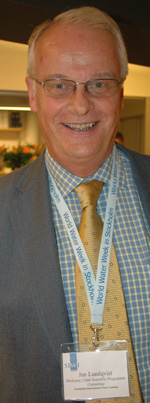 From Monday 18 October to Thursday 21 October 2010, LUCID (Lund University Centre of Excellence for Integration of Social and Natural Dimensions of Sustainability) organises a series of interesting public lectures at Lund University. They all have some South Asian focus, and being part of an interdisciplinary PhD Course on Water Governance that LUCID runs during the fall 2010. The aim of the course is to take a critical approach to current development discourses – and examine their compatibility with sustainable water governance. More information about the course.
From Monday 18 October to Thursday 21 October 2010, LUCID (Lund University Centre of Excellence for Integration of Social and Natural Dimensions of Sustainability) organises a series of interesting public lectures at Lund University. They all have some South Asian focus, and being part of an interdisciplinary PhD Course on Water Governance that LUCID runs during the fall 2010. The aim of the course is to take a critical approach to current development discourses – and examine their compatibility with sustainable water governance. More information about the course.
– Monday 18 October, 10.00–12.30:
Prof. Jan Lundqvist (photo to the right), Stockholm International Water Institute
(SIWI), and previously at the Dept. of Water and Environmental Studies,
Linköping University. He will lecture on ”Water and Food Security Governance: A field to fork perspective”.
Venue: Biosfären, 2nd floor Geocentrum 1.
– Tuesday 19 October, 09.15 – 12.00
Prof. Claudia Pahl-Wostl, Institute for Environmental Systems Research (USF), Osnabrück, Germany. She will lecture on ”Governing processes of change towards integrated and adaptive water governance and management: A multi-level challenge”.
Venue: Biosfären, 2nd Floor Geocentrum 1
– Wednesday 20 October, 09.15 – 12.00
Prof. Ashok Swain, Dept. of Peace and Conflict Research, Uppsala University, and Director of the Uppsala Centre for Sustainable Development. He will lecture on ”Global Climate Change and Challenges for International River Sharing Arrangements”. This lecture will be given via video conference.
Venue: Världen, 1st Floor Geocentrum 1
– Thursday 21 October, 11.00 – 13.00
Dr. Håkan Tropp, Project Director at the UNDP Water Governance Facility at the Stockholm International Water Institute (SIWI). He will lecture on ”Water Governance in practice: Demystification for enhanced application”. Dr. Tropp’s areas of expertise are water governance reform and implementation, water adaptation, economics, financing, gender issues and stakeholder dialogue, especially in Africa, the Middle East and Asia.
Venue: Hydrosfären, 2nd Floor Geocentrum 1.
More information about the October 2010 seminar series.
• Karolinska Instititutete seminar on the global good
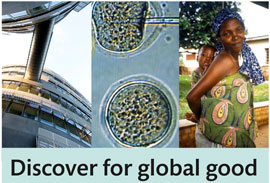 A seminar entitled ”Discover for global good. Intensifying Karolinska Institutet’s involvement in global health: new links to molecular tools?” will be held at Karolinska Institutet in Stockholm on Tuesday 19 October 2010, 14.00–20.00. It is organised by Karolinska International Research and Training Committee (KIRT), with an aim to to entice Karolinska Institutet scientists in cell biology, genomics, clinical sciences and public health to focus on poverty-related diseases.
A seminar entitled ”Discover for global good. Intensifying Karolinska Institutet’s involvement in global health: new links to molecular tools?” will be held at Karolinska Institutet in Stockholm on Tuesday 19 October 2010, 14.00–20.00. It is organised by Karolinska International Research and Training Committee (KIRT), with an aim to to entice Karolinska Institutet scientists in cell biology, genomics, clinical sciences and public health to focus on poverty-related diseases.
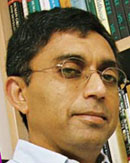 The lecturers include Prof. Ajit Varki (photo), Department of Cellular and Molecular Medicine (CMM), University of California in San Diego, USA, who will talk about ”Are there answers to the global good in molecular research? Examples from glycobiology?”; Prof. Hans Rosling, Gapminder, who will talk about ”Global good for whom?”; Dr. Chris Wilson, Bill and Melinda Gates Foundation, who will talk about ”What is global good?”; and
Prof. Staffan Normark, Royal Swedish Academy of Science, who will talk about ”Microbiology for global good”. The seminar will be introduced by the KIRT Committee Chairman, Prof. Vinod Diwan, Division of Global health
(IHCAR); and Prof. Harriet Wallberg-Henriksson, Karolinska Institutet President. Venue: Jacob Berzelius (former Adam), Berzelius väg 3, KI, Campus Solna. More information.
The lecturers include Prof. Ajit Varki (photo), Department of Cellular and Molecular Medicine (CMM), University of California in San Diego, USA, who will talk about ”Are there answers to the global good in molecular research? Examples from glycobiology?”; Prof. Hans Rosling, Gapminder, who will talk about ”Global good for whom?”; Dr. Chris Wilson, Bill and Melinda Gates Foundation, who will talk about ”What is global good?”; and
Prof. Staffan Normark, Royal Swedish Academy of Science, who will talk about ”Microbiology for global good”. The seminar will be introduced by the KIRT Committee Chairman, Prof. Vinod Diwan, Division of Global health
(IHCAR); and Prof. Harriet Wallberg-Henriksson, Karolinska Institutet President. Venue: Jacob Berzelius (former Adam), Berzelius väg 3, KI, Campus Solna. More information.
•
Geshe Pema Dorjee lectures at Karlstad University
Geshe Pema Dorjee,
Director of the Bodong Research and Publication Centre, Dharamsala, India, will lecture at Karlstad University on Wednesday 20 October 2010, 13.30–15.00. He will talk about ”Mindfulness & Meditation in Tibetan Buddhism”. The seminar is jointly organised by the Department of Religious Studies and Theology, and the Faculty for Teacher’s Training at Karlstad University. Venue: Hall 1B 309. More information.
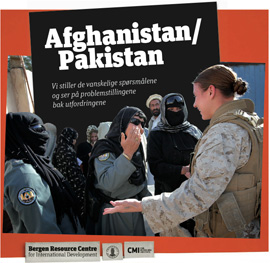 • Focus on Afghanistan and Pakistan in Bergen
• Focus on Afghanistan and Pakistan in Bergen
During the period 20–22 October 2010, CMI (Chr. Michelsen Institute) and Bergen Resource Centre for International Development focus on Afghanistan and Pakistan. The two institutions arrange lectures, debates and literary salons. All the meetings and seminars are free and open to the public. The programme includes a seminar with Peter Marsden, British Aid Agencies in Afghanistan on ”The Provision of Resources in Pursuit of Strategic Interests: The Great Game to Today”, a panel debate on ”Understanding Afghanistan: Mining Information in Strange Places”, a seminar with Kaja Borchrevink, PRIO, Olso, on ”Teaching Religion, Taming Rebellion? The Afghan - Pakistani Madrasa Tradition”; and a seminar with Torunn W. Chaudhary, CMI and Orzala Ashraf Nemat, YWLC/SOAS on ”Fighting Violence against Women in Afghanistan: Prospects, Strategies and Possible Backlashes”. More information and full programme.
• 3rd Annual Contemporary India Seminar at Oslo University
 The 3rd Annual Contemporary India Seminar will be held in Oslo on Monday 22 November 2010. It is organised by the Centre for Development and the Environment (SUM) at the University of Oslo. The theme for the 2010 Contemporary India Seminar will be ”Transitions”, focusing on social change often narrated in tropes of transition. Earlier generations of rural economists and sociologists saw the rural economy as undergoing a change from a feudal to a more or less complete capitalist mode of production. Students of Indian democracy variously see the end of colonial rule; the decline of the Congress system; or the implementation of the Mandal Commission report as important transitory events that unmistakably altered the terrain of Indian politics. And more recently, the 1991 liberalisation of the economy is highlighted by economists and social scientists as an important watershed that decisively changed the Indian economy from Nehruvian to Neoliberal. Abstracts should be submitted before 15 October 2010. More information.
The 3rd Annual Contemporary India Seminar will be held in Oslo on Monday 22 November 2010. It is organised by the Centre for Development and the Environment (SUM) at the University of Oslo. The theme for the 2010 Contemporary India Seminar will be ”Transitions”, focusing on social change often narrated in tropes of transition. Earlier generations of rural economists and sociologists saw the rural economy as undergoing a change from a feudal to a more or less complete capitalist mode of production. Students of Indian democracy variously see the end of colonial rule; the decline of the Congress system; or the implementation of the Mandal Commission report as important transitory events that unmistakably altered the terrain of Indian politics. And more recently, the 1991 liberalisation of the economy is highlighted by economists and social scientists as an important watershed that decisively changed the Indian economy from Nehruvian to Neoliberal. Abstracts should be submitted before 15 October 2010. More information.
• Information about South Asia related lectures and seminars
See SASNET's page, http://www.sasnet.lu.se/conferences.html
Business and Politics
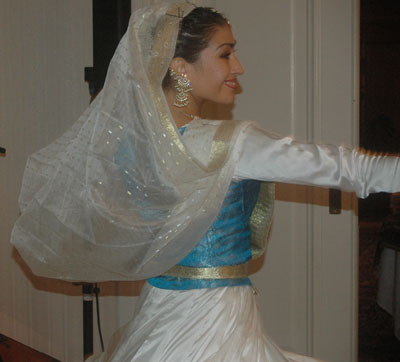 |
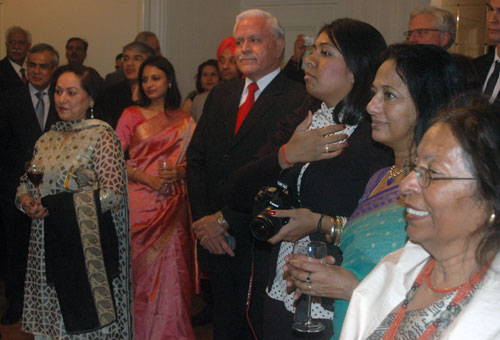 |
• Ashok Sajjanhar installed as India’s new Ambassador
in Stockholm
Arriving in mid-August 2010, H.E. Mr. Ashok Sajjanhar has taken over as new Ambassador of India to Sweden and Latvia, based at Stockholm. Mr. Sajjanhar presented his Credentials to His Majesty Carl XVI Gustaf, King of Sweden, on Thursday 30 September 2010.
In the evening a reception for invited guests was held at the Ambassador’s residence. A Kathak dance performance was part of the programme (photo). SASNET was represented at the occasion by deputy director Lars Eklund and his wife Bubu Munshi Eklund. See some more of Lars’ photos from the event.
Ashok Sajjanhar has Honours and Masters Degree in
Physics from Delhi University, and commenced his service career as a
Staff Officer in one of India’s largest Public Sector Banks – Bank of
India. Switching to a career in diplomacy, Mr. Sajjanhar has held
various significant positions in Indian Embassies in Moscow,
Teheran, Geneva, Dhaka, Bangkok, Washington, Brussels and
Astana.
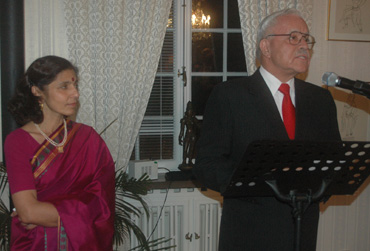 Mr. Sajjanhar’s professional interests include International
Trade and during his assignment in Geneva from 1988 to 1992, he
made significant contribution while representing India in the
Uruguay Round of Multilateral Trade negotiations. He continued to
negotiate on behalf of India up to 1994.
Mr. Sajjanhar has held the position of Director, Indian Foreign
Service Institute, New Delhi where he introduced many innovative methods in training curriculum. Mr.
Sajjanhar has been an active participant in various International Seminars organized by UNCTAD and
WTO. He has participated as Resource Person and Speaker at several Conferences on the Multilateral
Trading System in Beijing, Kuala Lumpur, Bangkok, Papua New Guinea, Seoul, Geneva, etc.
Mr. Sajjanhar’s professional interests include International
Trade and during his assignment in Geneva from 1988 to 1992, he
made significant contribution while representing India in the
Uruguay Round of Multilateral Trade negotiations. He continued to
negotiate on behalf of India up to 1994.
Mr. Sajjanhar has held the position of Director, Indian Foreign
Service Institute, New Delhi where he introduced many innovative methods in training curriculum. Mr.
Sajjanhar has been an active participant in various International Seminars organized by UNCTAD and
WTO. He has participated as Resource Person and Speaker at several Conferences on the Multilateral
Trading System in Beijing, Kuala Lumpur, Bangkok, Papua New Guinea, Seoul, Geneva, etc.
A keen
proponent of Indian culture, he was the Director of Jawaharlal Nehru Cultural Centre in Moscow where
he was instrumental in ushering in a new paradigm in cultural diplomacy. Mr. Sajjanhar was the Deputy
Chief of Mission as well as the Deputy Permanent Representative of India to UN-ESCAP during his
assignment in Bangkok from 2000 to 2003. He was Deputy Chief of Mission in the Mission to European
Union, Belgium and Luxemburg from 2005 to 2007 and Ambassador of India to Kazakhstan from 2007
to 2010.
Mr. Sajjanhar is fluent in English, Hindi and Russian and has a working knowledge of French and Persian.
His other interests include reading, music and Indian culture. His wife Mrs. Madhu Sajjanhar (seen together with husband on photo above) is an
economist and educationist by training and is a keen painter. They have a son and a daughter, both of
whom are keenly interested in and proficient in music.
• Stockholm business meeting on India’s economic prospects
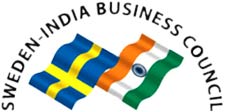 On Wednesday 24 November 2010, at 19.00, the Sweden India Business Council (SIBC) organises a discussion meeting entitled ”Rupee me. Prophecy” in Stockholm. The event is co-organised by the Swedish Trade Council and Södra Teatern. The debated takes off in a statement by Prof. Hans Rosling that in 50
years from now India will be the world's economic superpower. How does this affect the prospects of saving funds in India? A panel of experts will analyze the Indian economy and refine the two
extreme images; India as the new economic success of the machine with IT for the elderly on exports, on
the one hand. Extreme poverty and growing inequality on the other. The experts at disposal are Fredrik
Fexe (Trade Council), Gautam Bhattacharyya, Prabhakar Grandhi (Scandinavia Head of Infosys), Parul
Sharma (CSR manager at Sandvik Asia), Malin Mendel Westberg (SVT) and Charlotte Bohman (Hand in hand).
Indian Ambassador Ashok Sajjanhar and author Siddharth Dhanvant Shanghvi will be guests of honour. Venue: Södra Teatern,
Kägelbanan, Mosebacke Torg 1–3, Stockholm.
On Wednesday 24 November 2010, at 19.00, the Sweden India Business Council (SIBC) organises a discussion meeting entitled ”Rupee me. Prophecy” in Stockholm. The event is co-organised by the Swedish Trade Council and Södra Teatern. The debated takes off in a statement by Prof. Hans Rosling that in 50
years from now India will be the world's economic superpower. How does this affect the prospects of saving funds in India? A panel of experts will analyze the Indian economy and refine the two
extreme images; India as the new economic success of the machine with IT for the elderly on exports, on
the one hand. Extreme poverty and growing inequality on the other. The experts at disposal are Fredrik
Fexe (Trade Council), Gautam Bhattacharyya, Prabhakar Grandhi (Scandinavia Head of Infosys), Parul
Sharma (CSR manager at Sandvik Asia), Malin Mendel Westberg (SVT) and Charlotte Bohman (Hand in hand).
Indian Ambassador Ashok Sajjanhar and author Siddharth Dhanvant Shanghvi will be guests of honour. Venue: Södra Teatern,
Kägelbanan, Mosebacke Torg 1–3, Stockholm.
• Niclas Trouvé new Swedish Special Envoy to Afghanistan and Pakistan
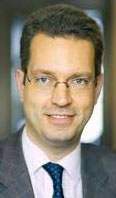 On 1 September 2010, Ambassador Niclas Trouvé (photo to the right, by Pawel Flato) was appointed as the new Special Envoy to Afghanistan and Pakistan. He has been Sweden’s Ambassador in Baghdad since 2006. The Swedish Government attaches great importance to development in Afghanistan, and Sweden is making significant contributions to support security, development, democracy and human rights in the country.
On 1 September 2010, Ambassador Niclas Trouvé (photo to the right, by Pawel Flato) was appointed as the new Special Envoy to Afghanistan and Pakistan. He has been Sweden’s Ambassador in Baghdad since 2006. The Swedish Government attaches great importance to development in Afghanistan, and Sweden is making significant contributions to support security, development, democracy and human rights in the country.
In addition to the civilian operations and Swedish development cooperation, Sweden has a considerable military presence within the framework of the UN-mandated peace-keeping force (ISAF). The Special Envoy is to collect and disseminate information, and build networks with the countries in the region and with other countries and organisations that are active in Afghanistan and Pakistan. He works closely with ministries and government agencies in Sweden, with the embassies in Kabul and Islamabad, and with the new Swedish Senior Civilian Representative in Mazar-e-Sharif.
More information.
• Information about South Asia related business and politics in Sweden
See SASNET's page, http://www.sasnet.lu.se/polbuss.html
South Asia related culture in Scandinavia
• Indian cultural festival for three months in Stockholm
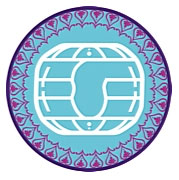 Indian culture in the form of music, dance, film, art and literature is very much in focus in Stockholm during the period 1 October 2010 – 9 January 2011. In a joint effort by Kulturhuset Stockholm, Södra Teatern, Dansens Hus, Bollywoodbio/Bio Rio, Söderbokhandeln and others, a large number of cultural events take place. The entire project is entitled ”Indien/Indien”, and offers meetings with several well-renowned Indian artists, writers and poets, film makers, fashion designers, etc. The initiative comes from Erik Sjöström, Head of Kulturhuset, who has invited other organisers in Stockholm to join.
Indian culture in the form of music, dance, film, art and literature is very much in focus in Stockholm during the period 1 October 2010 – 9 January 2011. In a joint effort by Kulturhuset Stockholm, Södra Teatern, Dansens Hus, Bollywoodbio/Bio Rio, Söderbokhandeln and others, a large number of cultural events take place. The entire project is entitled ”Indien/Indien”, and offers meetings with several well-renowned Indian artists, writers and poets, film makers, fashion designers, etc. The initiative comes from Erik Sjöström, Head of Kulturhuset, who has invited other organisers in Stockholm to join.
More information about the Indien/Indien project in Stockholm.
You can also join the Facebook fan group: http://www.facebook.com/pages/IndienIndien/, which offers constant updated information.
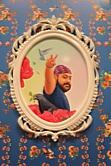 Kulturhuset at Sergels Torg
launches an exhibition of 15 contemporary artists with their roots in India and Pakistan. The exhibition, entitled ”Samtidigt”, will be shown during the entire period, and features works by Anita Khemka, Archana Hande, Bharat Sikka, Gigi Scaria, Hema Upadhyay, Nalini Malani, Pushpamala, Reena Saini Kallat, Rashmi Kaleka, Sheba Chhachhi, Shilpa Gupta, Thugral & Tagra, Vivan Sundaram, and Chitra Ganesh. They represent different strains within modern Indian art.
Kulturhuset at Sergels Torg
launches an exhibition of 15 contemporary artists with their roots in India and Pakistan. The exhibition, entitled ”Samtidigt”, will be shown during the entire period, and features works by Anita Khemka, Archana Hande, Bharat Sikka, Gigi Scaria, Hema Upadhyay, Nalini Malani, Pushpamala, Reena Saini Kallat, Rashmi Kaleka, Sheba Chhachhi, Shilpa Gupta, Thugral & Tagra, Vivan Sundaram, and Chitra Ganesh. They represent different strains within modern Indian art.
More information about the art exhibition.
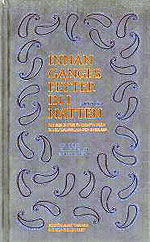 In collaboration with the magazine Karavan and Tranan publishing house, Kulturhuset will also organise an Indian Poetry Evening on Saturday 30 October 2010. The starting point for the event will be the wonderful anthology of Indian poems translated into Swedish entitled ”Innan Ganges flyter in i natten” that was published last year as a project within the framework of the Indian Library project. More information about the project.
In collaboration with the magazine Karavan and Tranan publishing house, Kulturhuset will also organise an Indian Poetry Evening on Saturday 30 October 2010. The starting point for the event will be the wonderful anthology of Indian poems translated into Swedish entitled ”Innan Ganges flyter in i natten” that was published last year as a project within the framework of the Indian Library project. More information about the project.
Two of the Indian poets represented in the anthology, Sujata Bhatt and Adil Jussawalla, will be on spot, along with the editors of the volume (Tomas Löfström and Birgitta Wallin) and Swedish participants in the project – Ann Jäderlund, Marie Lundquist, Lars Hermansson, Arne Johnsson, Niclas Nilsson and Jonas Ellerström, who will read their interpretations of Indian poems they have translated for the anthology. More information about the Poetry Evening.
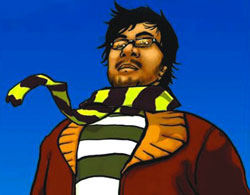 Södra Teatern offers a varied Indian cultural programme from 5 October 2010 and onwards. Besides evenings full of Bhangra and Bollywood music, the theatre will also be the venue for a number of literary and cultural events. See the full programme.
Södra Teatern offers a varied Indian cultural programme from 5 October 2010 and onwards. Besides evenings full of Bhangra and Bollywood music, the theatre will also be the venue for a number of literary and cultural events. See the full programme.
On Tuesday 5 October 2010, a Cult Fiction programme will be organised, featuring the Indian young writers Samit Basu and Anjum Hasan (whose latest book translated into Swedish will be launched during the evening), plus the Swedish turned Indian writer Zac O’Yeah.
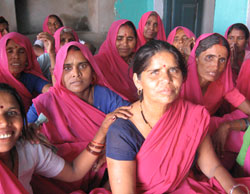 On Sunday 10 October follows an event entitled ”Pink India – Three Indian Women Heroes”, on women’s rights in India. It features Sampat Devi Pal, founder of the Gulabi gang, a feminist Robin Hood movement in north India; the Tamil historian and writer
Ambai; and Urvashi Butalia, who established the feminist book publishing house Kali for Women in 1984.
On Sunday 10 October follows an event entitled ”Pink India – Three Indian Women Heroes”, on women’s rights in India. It features Sampat Devi Pal, founder of the Gulabi gang, a feminist Robin Hood movement in north India; the Tamil historian and writer
Ambai; and Urvashi Butalia, who established the feminist book publishing house Kali for Women in 1984.
On Saturday 16 October 2010, Södra Teatern invites to a discussion talk meeting between the well-known writer Amitava Kumar; Sabrina Dhawan, who wrote the script for the Monsoon Wedding film; and the Indian journalist Hussain Zaidi. The event has been entitled ”The Private Face of Terror and the Public Face of Love”.
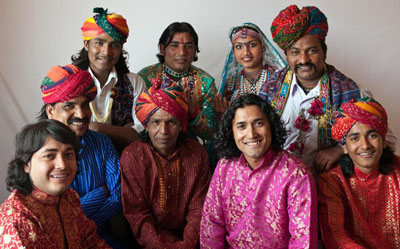 • Rajasthani musicians perform in Malmö and Copenhagen
• Rajasthani musicians perform in Malmö and Copenhagen
The Dhoad Gypsies from Rajasthan, a group well known all over the world as cultural ambassadors of the Rajasthani folk culture heritage, tours Europe during the period August-December 2010. On Sunday 10 October, at 19.00, they perform at Malmö, Sweden. Venue: Mix Musik, Kulturhuset Bong, Nordenskiöldsgatan 19. More information.
The day before, on Saturday 9 October, at they perform in Copenhagen, Denmark, at Global World Music Venue, Nørre Allé 7. More information.
• Indian Violin maestro performs in Copenhagen
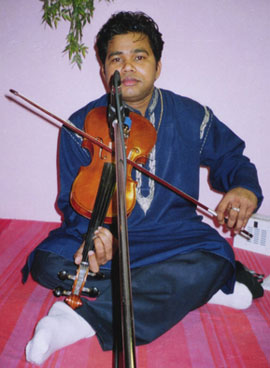 The eminent Indian violin player Manoj Barua performs in Copenhagen on Tuesday 19 October 2010, at 18.30. Manoj Barua, hailing from Assam but trained in Kolkata is one of most talented young violin virtuoso within the Hindustani musical tradition of today. He has previously performed all over India and in Europe, but never before in Denmark.
The eminent Indian violin player Manoj Barua performs in Copenhagen on Tuesday 19 October 2010, at 18.30. Manoj Barua, hailing from Assam but trained in Kolkata is one of most talented young violin virtuoso within the Hindustani musical tradition of today. He has previously performed all over India and in Europe, but never before in Denmark.
Manoj will be accompanied by Tabla artist Suman Sarkar, who has performed with many leading Indian musicians and has toured Europe several times.
As usual, the concert is organised by Indisk Musikforening in Copenhagen. Venue: Tranquebar Rejseboghandel, Borgergade 14, Copenhagen. More information about the concert.
![]() • Stockholm premiere for film on Baul music
• Stockholm premiere for film on Baul music
Swedish-Indian Society (Svensk-Indiska Föreningen) in Stockholm organises a film release show on Wednesday 20 October 2010, 19.00. They will show the film ”Joy Guru – en musikresa till indiska Västbengalen” (Joy Guru – a musical journey to Indian West Bengal), a documentary produced by film makers Emmali Anseus and Henrik Gahnström. It focuses on the traditional Baul music, including a meeting with Deb Das Baul, and the Swedish lady Silvia Bergman, who has lived 12 years among the Bauls. Venue: Dieselverkstaden, Markusplatsen 17, Nacka. More information.
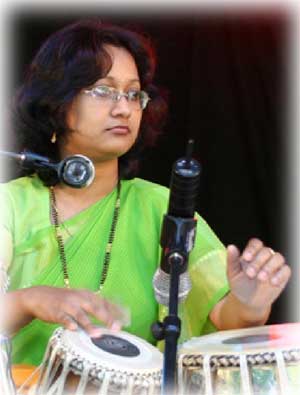 • Uppsala charity concert with Suranjana Ghosh
• Uppsala charity concert with Suranjana Ghosh
A charity concert with eminent Tabla player Suranjana Ghosh and other artists will be held in Uppsala on Sunday 31 October 2010, at 16.00. It is held in support of development work in the Sundarbans area of West Bengal state, India. Besides Suranjana, the concert features Nina Ramsby (song), Erik Steen (flamenco guitar), Coste Apetrea (guitar), Anisur Rahman (poetry) and the jazz ensemble Movio. A documentary film about West Bengal will also be shown. The revenues goes to the non-profit organisation Canning Swanirbhar who works with different sort of development in distant rural areas in West Bengal, mainly in Sundarbans. More information.
• More information about South Asia related culture
in Sweden and Scandinavia
See SASNET’s page, http://www.sasnet.lu.se/culture.html
New and updated items on SASNET web site
• Swedish departments where research on
South Asia is going on:
Constantly added to the list of research environments at Swedish
universities, presented by SASNET. The full list now includes 271 departments,
with detailed descriptions of the South Asia related research and education
taking place! Go to http://www.sasnet.lu.se/environment.html
• Useful travelling information
Look at http://www.sasnet.lu.se/travelling.html.
Updated travel advises from the The British Foreign & Commonwealth
Office about safety aspects on travelling to the countries of
South Asia. Recent changed information on Afghanistan, Bangladesh and Pakistan.
Best regards,
Lars Eklund
deputy director/webmaster
SASNET/Swedish South Asian Studies Network
SASNET is a national network for research, education, and information about South Asia based at Lund University. Its aim is to promote a dynamic networking process in which Swedish researchers co-operate with researchers in South Asia and globally.
The SASNET network is open to all the sciences. Priority is given to interdisciplinary cooperation across faculties, and more particularly to institutions in the Nordic countries and South Asia. SASNET believes that South Asian studies will be most fruitfully pursued as a cooperative endeavour between researchers in different institutions who have a solid base in their mother disciplines.
The network is financed by Lund
University.
Postal address: SASNET – Swedish South Asian Studies Network,
Scheelevägen 15 D, SE-223 70 Lund, Sweden
Visiting address: Ideon Research Park, House Alpha 1 (first floor,
room no. 2040), in the premises of the Centre for East and South
East Asian Studies at Lund University (ACE).
Phone: + 46 46 222 73 40
Fax: + 46 46 222 30 41
E-mail: sasnet@sasnet.lu.se
Web site:
http://www.sasnet.lu.se
SASNET - Swedish South Asian Studies Network/Lund
University
Address: Scheelevägen 15 D, SE-223 70 Lund, Sweden
Phone: +46 46 222 73 40
Webmaster: Lars Eklund
Last updated
2011-04-08